How Many Products Should I Start With When Dropshipping?
I'm looking for...
How many products should I start with when dropshipping? It’s a common question with no one-size-fits-all answer, but this article uncovers the key factors to consider, including the importance of product selection.
Are fewer products better for your strategy, or should you dive in with a wide selection?
Therefore, I’ll explore how your niche, budget, and customer preferences can guide your decision, giving you the insights needed to optimize your store’s success. Curious to learn more? Keep reading to find out!
Create Your Online Store in just 5 Minutes – For Free
Pick your niche, our AI builds your store, add 10 winning products and we teach you how start selling today. Start picking your niche
Key Takeaways
| Store Type | Number of Products to Start With | Store Examples | Pros | Cons |
|---|---|---|---|---|
| General Store | 20-50 Products | Oddity Mall, Inspire Uplift, Best Choice Products |
 Diverse product range Diverse product range Adaptable to market trends Adaptable to market trends Lower risk of saturation Lower risk of saturation
|
 Lack of niche expertise Lack of niche expertise Higher advertising costs Higher advertising costs Brand identity issues Brand identity issues
|
| Niche Store | 5-20 Products | Notebook Therapy, Warmly, GymShark |
 Targeted audience Targeted audience Efficient marketing Efficient marketing Strong brand recognition Strong brand recognition
|
 Limited product range Limited product range Market volatility Market volatility High competition in niche High competition in niche
|
| One-Product Store | 1 Product | BlendJet, Thinx, Snooz |
 Simple to manage Simple to manage Clear marketing focus Clear marketing focus Easier testing and optimization Easier testing and optimization
|
 Revenue dependent on one product Revenue dependent on one product Market saturation risk Market saturation risk Limited upsell and cross-sell opportunities Limited upsell and cross-sell opportunities
|
How Many Products Should I Start With When Dropshipping in 2025?
How many calories should I eat daily to lose weight? Of course, you can’t answer, because you need information about my current weight, height, age, gender, body type, lifestyle, whether I exercise, and many more.
So, there’s no ideal answer about How many products you should start with when dropshipping with Shopify. Therefore, there are a few things to consider and find out your ideal number!
In my experience, when you’re starting with dropshipping, less is definitely more. I’ve seen people make the mistake of launching hundreds of products, thinking that more options equal more sales, but it often backfires. Trust me, it’s much better to start small and focused.
I recommend starting with about 10 to 20 products. This way, you’re not overwhelming yourself right out of the gate, and you can really focus on testing what works.
Think about it—if you’re building a fitness store, for example, wouldn’t it make more sense to start with just a few high-demand items like resistance bands or yoga mats? By focusing on your target demographic, you can dial in your marketing, see what resonates, and then scale up from there.
Launching with too many products in a general store can also significantly impact your marketing budget and fulfillment processes, not to mention complicate your overall business strategy.
Ultimately, starting with a manageable number of products helps you build a thriving online business without overwhelming yourself with inventory costs or unnecessary complexity. As you gain traction, you can then expand your product range based on what’s working.
What To Consider When Deciding How Many Products To Start With? [Top 9 Tips]
Figuring out how many products to launch within your dropshipping business is one of the key decisions that can impact your success. It’s essential to carefully plan your product catalog to ensure a balanced and appealing selection.
From my experience, there are several key factors you need to think about before you go all-in. Let’s dive into what you should be considering to kick off your thriving online business.
1. What’s Your Budget Like?
First and foremost, your marketing budget and overall financial situation will shape how many products you can handle.
Also, starting with a smaller product range allows you to control inventory costs and keep expenses in check.
In my experience, QuickBooks is great for managing these costs and helping you set realistic financial goals for your Shopify store. Understanding the supplier price range can also help you make informed decisions about your budget.
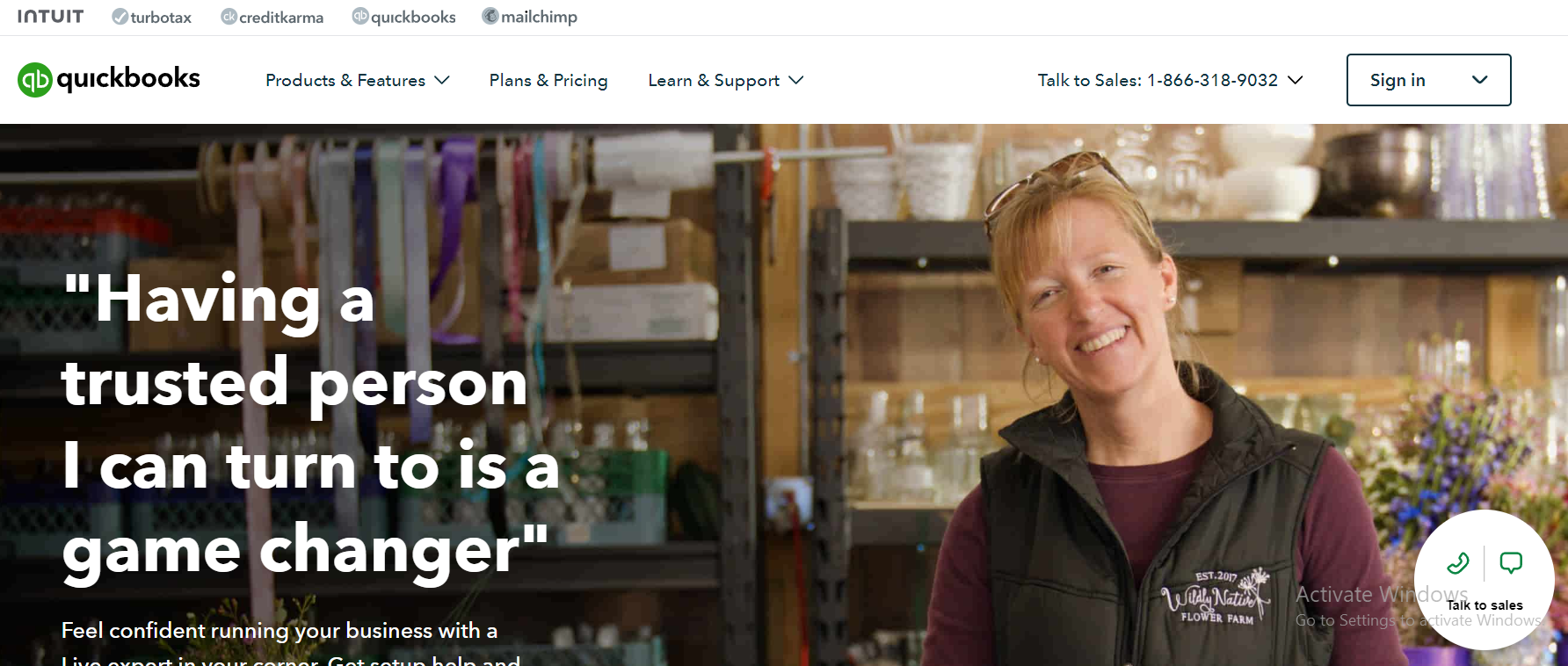
The last thing you want is to blow your budget on too many products before you’ve had time to figure out what works.
So, keep in mind that if you’re launching a general store, the costs can escalate quickly due to the need for multiple products and varied marketing campaigns.
On the other hand, a niche store with fewer, more targeted items can allow you to be more strategic with your budget.
2. How Much Time Can You Dedicate?
Running a dropshipping business is time-consuming, especially when you’re managing too many products.
From my experience, focusing on a manageable number of products gives you the time you need to deliver quality in all aspects—from optimizing your product pages to running successful marketing efforts.
If you have limited time, I’d recommend launching with a curated selection of products. This approach allows you to learn the ropes without stretching yourself too thin.
Remember, starting with too few products is better than trying to manage a massive catalog and delivering poor customer service.
3. What’s the Learning Curve Like?
One of the most important things to consider when deciding how many products to start with is the learning curve of running a dropshipping business.
When you’re just starting out, it can be overwhelming to juggle multiple tasks—finding the right suppliers, managing orders, creating effective marketing campaigns, and handling customer inquiries.
Trust me, I’ve been there, and trying to do it all with a massive product catalog will stretch you too thin.
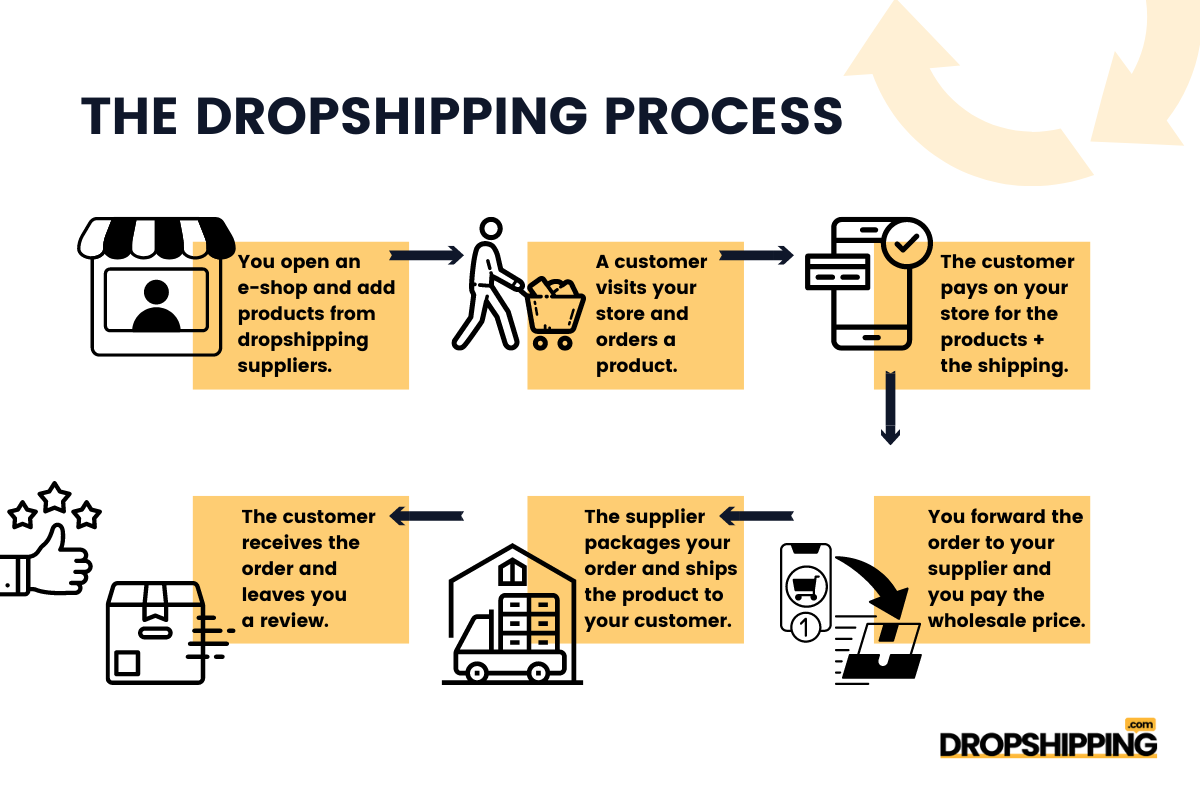
Let’s say you’re using a tool like AutoDS. This platform helps automate a lot of the grunt work, such as product imports, price monitoring, and order fulfillment.
It’s a lifesaver for beginners because it simplifies processes that would normally take hours to manage. However, even with the help of AutoDS, there’s still a lot to learn about optimizing your store’s performance.
For example, you might find that it’s harder to create custom product descriptions, set competitive pricing, or troubleshoot customer service issues when you’re dealing with too many products.
So, starting with a smaller selection—around 10 to 20 products—gives you the breathing room to learn these essential tasks without being overwhelmed. You’ll be able to master how to:
- Optimize product pages for conversions.
- Handle order fulfillment efficiently.
- Gather customer feedback to improve product selection.
4. What’s Your Business Model and Goal?
Your business model will also influence how many products you should launch with. If you’re building a niche store, your product range might be limited, but highly specialized.
If you’re focused on a general store, you may need more products to meet customer needs across different categories.
For example, if you’re targeting fitness enthusiasts with a niche store, a small selection of high-quality products like resistance bands or dumbbells can help you focus on a specific target demographic.
On the other hand, if you’re testing the waters with a general store, you’ll want to consider a broader product range but start with a manageable amount—like 10 to 20 products.
5. Know Your Target Audience
Understanding your target audience is essential. You need to do thorough market research to uncover what your potential customers are looking for and how many options they expect.
For example, Google Trends or AnswerThePublic can give you insights into what’s trending in your niche.
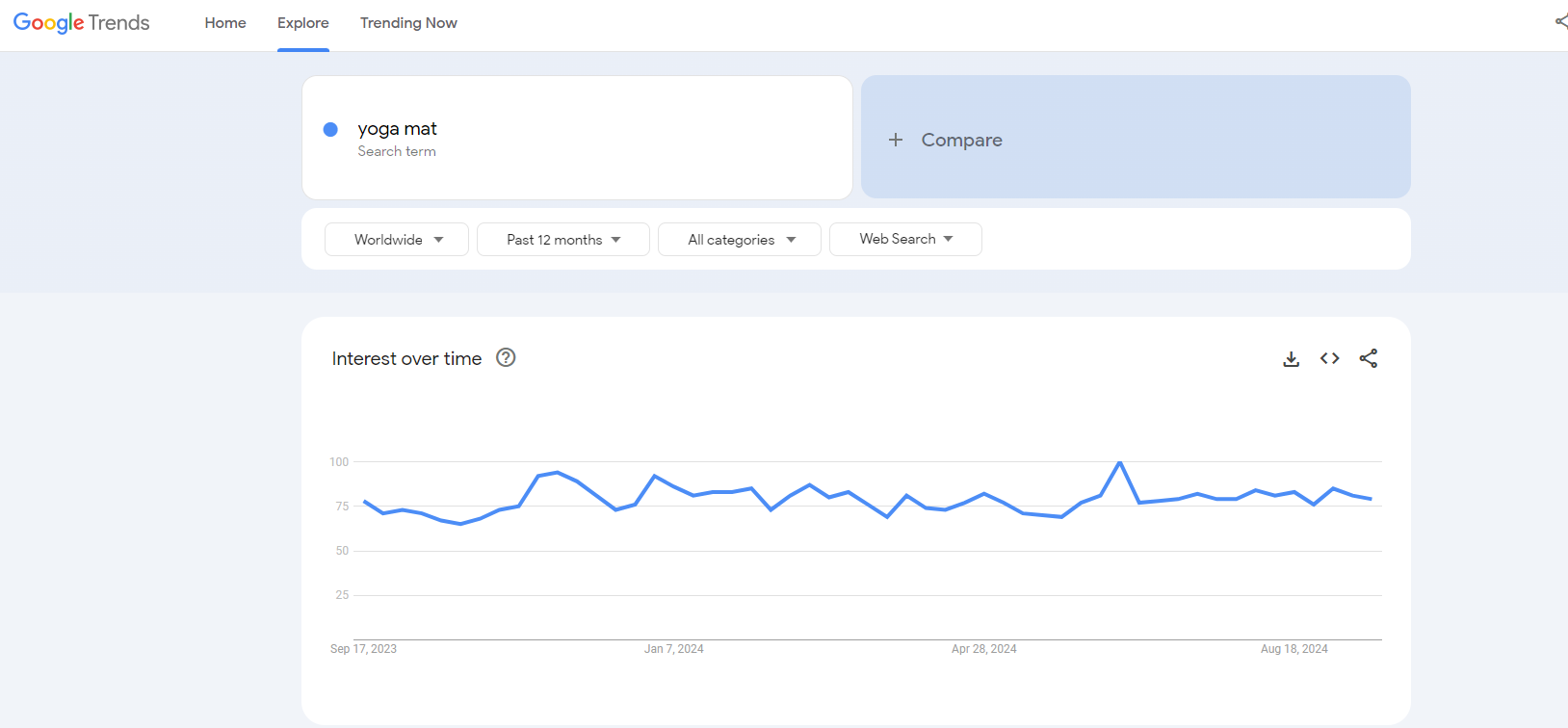
Are your potential customers expecting a niche store with fewer, specialized products, or are they looking for more variety to meet their customer needs? Based on what you find, you can refine your product selection.
Moreover, I also get valuable insights about my target audience by using the Meta Ads Library. Here I can spy on my competitor’s ads and analyze their customers’ engagement, interest in products, sales, profits, etc.
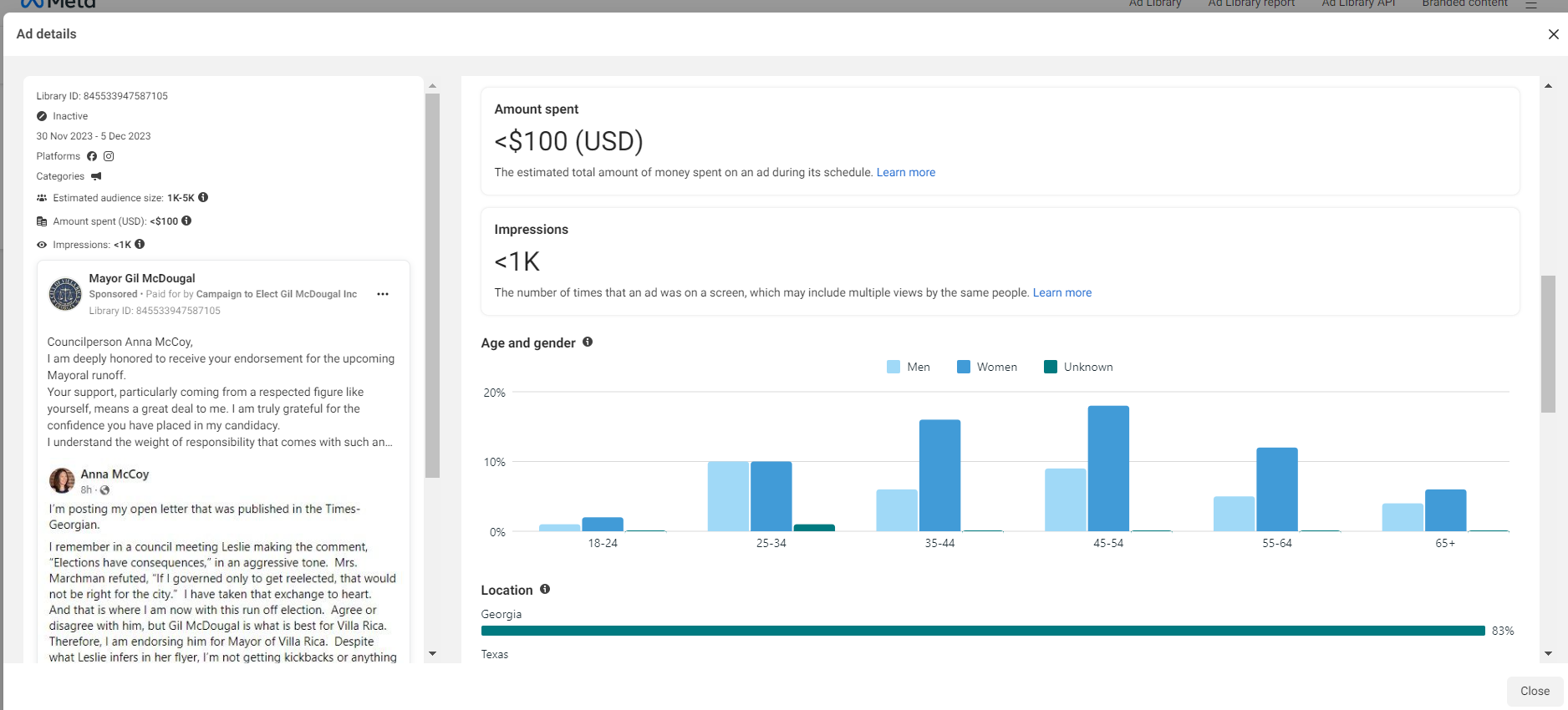
In my opinion, focusing on customer preferences early on will help you deliver the products your audience is searching for, rather than stocking up on items that won’t sell.
What Do The Customers Want?
No matter what type of dropshipping store you have, whether is a general, niche, or one-product store, your target audience might be your greatest compass! Just like the picture above implies ” customer is always right”.
Well, it means that the customer will remain your customer as long as you satisfy his/her needs.
So, uncovering the customer needs can lead you to the right answer How many products should I start with when dropshipping with Shopify?
If you want to build a brand and expand your business, you need to focus on your customers’ needs and wants.
So, what should you focus on when analyzing customers?
- Divide customers into market segments according to their monthly income.
- Consider your customer’s age range, because the needs and wants of customers differ according to their age range.
- Discover their lifestyle. This is very important because in this way you will meet your customers closely, knowing their hobbies, how they spend their free time, what they prefer to buy, whether products with affordable price, luxury products but with higher quality. This may tell you a lot about the number of products and categories you should start with.
- Search through their buying history. You can understand the buyer’s behavior by using data from previous and current transactions. You will know what things they buy and how much they spend.
5. Manage Your Resources Wisely
Managing your resources is another critical factor. When I first started, handling too many products became overwhelming—especially with fulfillment, inventory, and customer service.
That’s why I recommend starting small and using tools like ShipStation to streamline the fulfillment process.
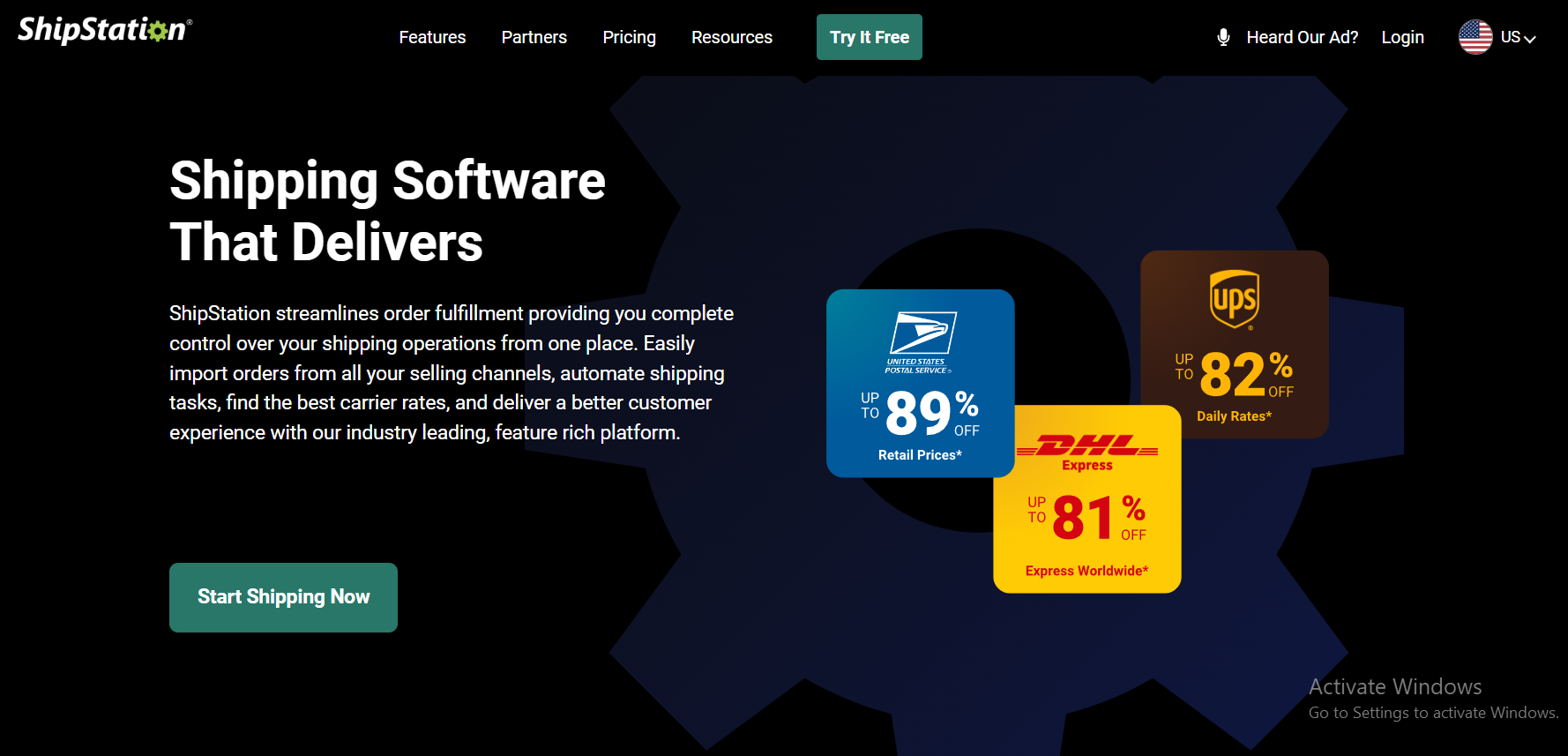
Over time, as your store grows, you can gradually expand your inventory and product selection based on what’s selling well and what your customers are asking for.
6. Focus Your Marketing Efforts
With a smaller product range, you can put more energy into crafting focused and compelling marketing efforts.
There are numerous marketing apps that can help you automate or manage your marketing process. However, too many products can still be overwhelming.
For example, I suggest using tools like Canva to create eye-catching product visuals.
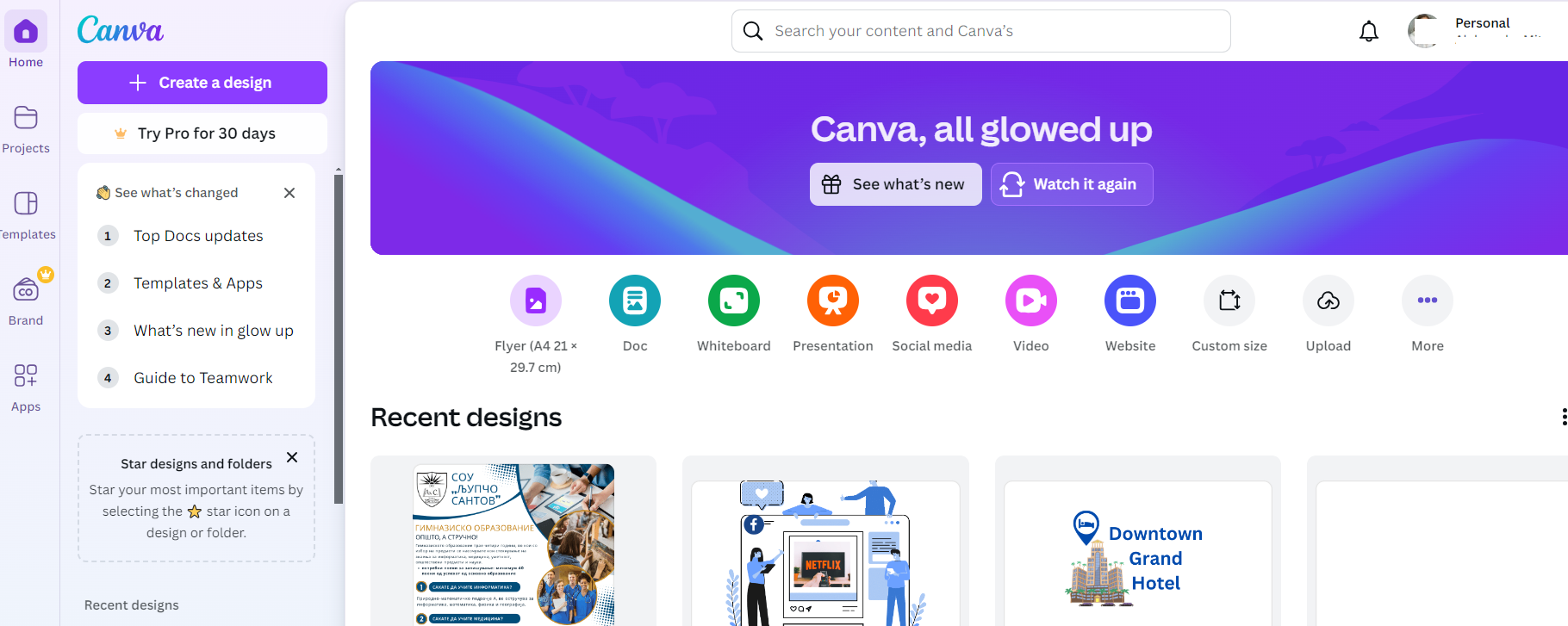
On the other hand, Hootsuite can really help you schedule social media campaigns, like Facebook ads, TikTok Ads, etc.

By focusing on a few key products, you’ll be able to run more targeted campaigns that speak directly to your target audience.
Trying to promote too many products at once can dilute your marketing impact, whereas a more concentrated approach lets you hone in on what’s working, and pivot quickly if needed.
7. Use A/B Testing to Optimize Your Products
Starting with a smaller product range also gives you the opportunity to fine-tune your listings through A/B testing.
This strategy allows you to test different elements of your product pages—like descriptions, pricing, and images—to see what performs best. For instance, you could test whether highlighting eco-friendly materials or offering limited-time discounts leads to more sales.
For example, with Optimizely, you can easily set up these tests and make data-driven decisions. With fewer products, it’s much easier to focus on optimizing each one.
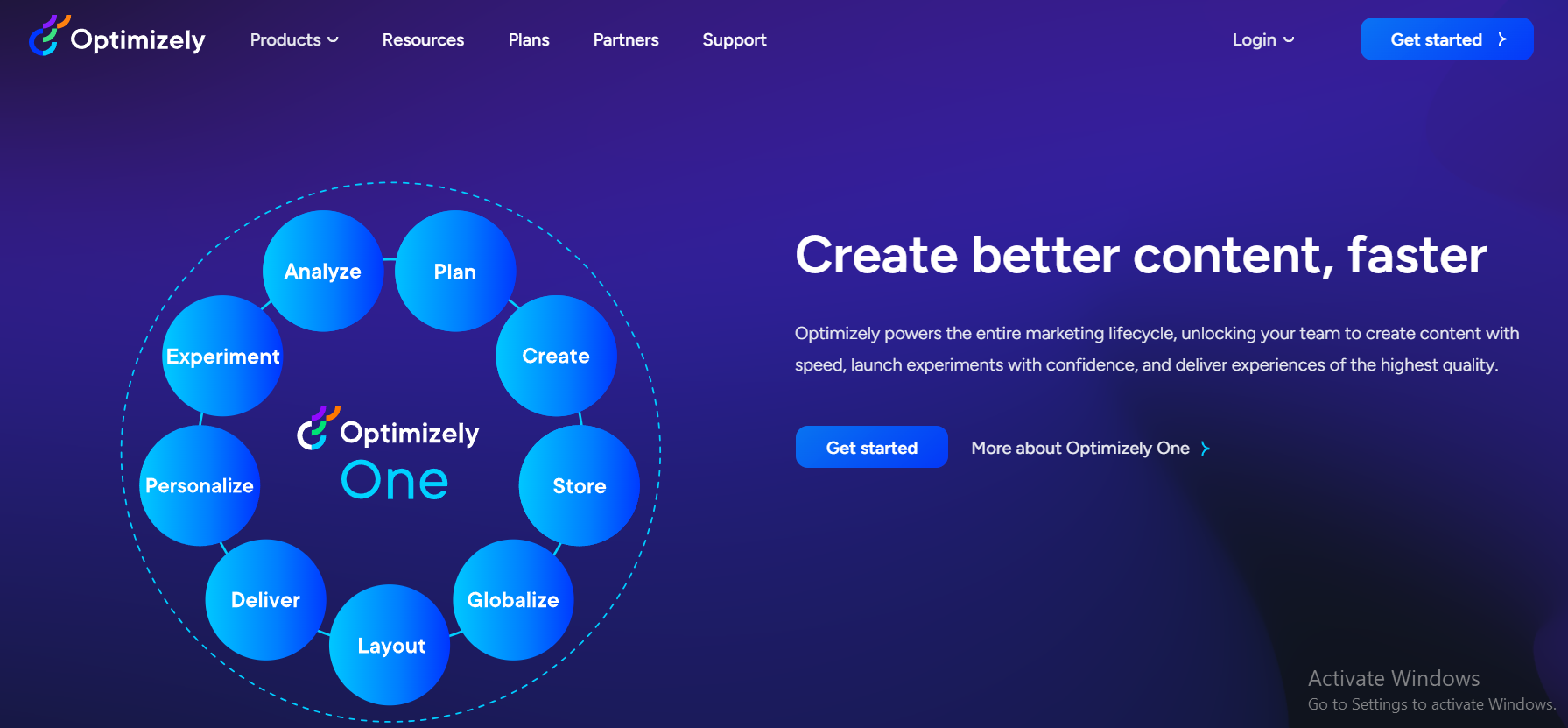
Running effective A/B tests can help you gather customer feedback and improve your conversions before you scale up.
8. Add New Items From Time To Time
Regularly adding new items to your dropshipping business can help keep your store fresh and engaging.
I suggest introducing new products every 4 to 6 weeks. This time frame is enough to keep your existing customers interested without overwhelming them, while also giving you a steady flow of new products to attract new customers.
For example, if you’re running a niche store that sells fitness gear, you could release new items like resistance bands or smart water bottles every month.
This keeps your product catalog exciting and allows you to see which new products perform well based on customer feedback.
Also, make sure to time these product drops around seasons or special events, like introducing outdoor fitness gear before summer.
9. Avoid the “Paradox Of Choice”
You have probably experienced the paradox of choice. It doesn’t feel pleasant, right?
The variety of product options may sometimes produce tension and, eventually, a sense of sadness.
If you’ve ever bought something, you’ve encountered the paradox of choice. You stand in front of a shelf of clothes you don’t want to try on and wish there were only two shelves.
Just as the “Jam experiment” gives us a message, when there are fewer product options, more people make purchases. (30% of buyers purchased jam when there were 6 jam options 3% of the buyers purchased jam when there were 24 jam options)
Instead of being Amazon or AliExpress, and selling everything, maybe you should focus on curating your product list select the ones that are the best options, and sell them!
For example, BlendJet is a dropshipping store that focuses on a single product – blenders, specifically the BlendJet 2 blender, perfect for whipping up smoothies and other tasty drinks.
Thus, the store has perfectly selected the products they sell, starting from their main BlendJet 2 blender to a few accessories related to the blender.
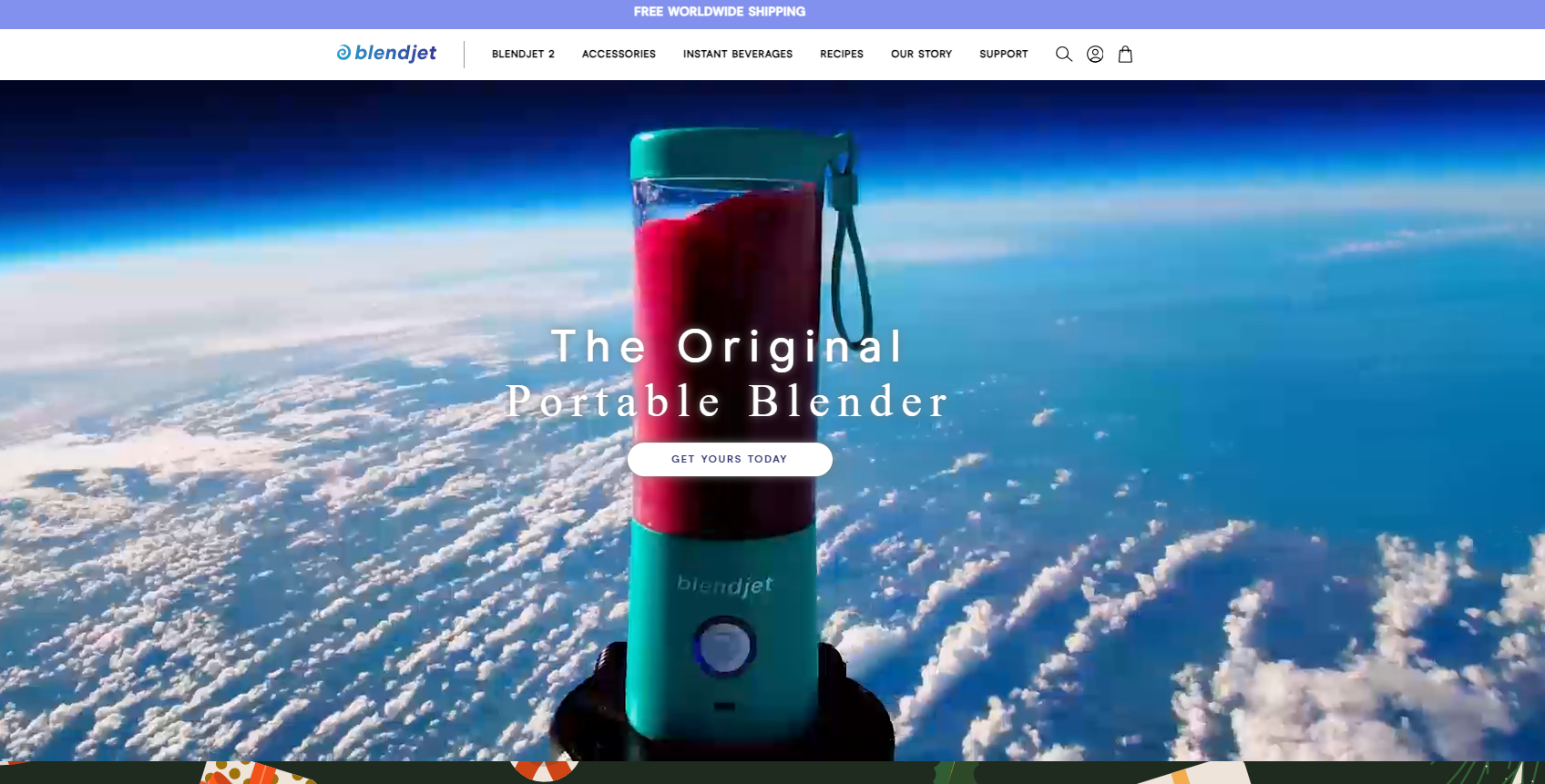
Just like many other dropshipping ventures, this started as a brilliant idea from a food blogger. Fast forward, and now it’s a thriving million-dollar dropshipping business.
How Many Products Should I Start With for a General Store?
A general store doesn’t specialize in anything. It can sell everything from underwear to furniture, covering a wide range of product categories. Yes, this might sound strange, but that’s what a general store is!
Most dropshippers do this to follow trends. They promote items that are popular at the time and likely to sell well.
So, here’s the “big” dropshipping question: How many products should I start with when building a general store?
If you choose a general store for your dropshipping business, there’s really no limit. However, a good starting point is having between 20 to 50 products.
For example, imagine walking into a grocery store and finding only one shelf with 15 items, while the rest of the store is empty.
You’d probably leave with a negative impression and shop somewhere else. You might even wonder if the store is closing down or isn’t a real store at all.
If the number is less than 30, the shop will lack credibility in the eyes of potential consumers.
With a general store, you must ensure that you have enough items to give convenience to your dropshipping business. You should add additional goods in the future, but 30 to 50 products is a reasonable starting point.
However, I do not recommend a general shop if you want to build your personal brand. Hence, many people purchase the exact same products from other retailers before you even begin offering them. They are also more difficult to sell, and there is little room for branding.
So, eBay might be a leader in this industry of general stores. Hence, the marketplace has almost all categories of products.
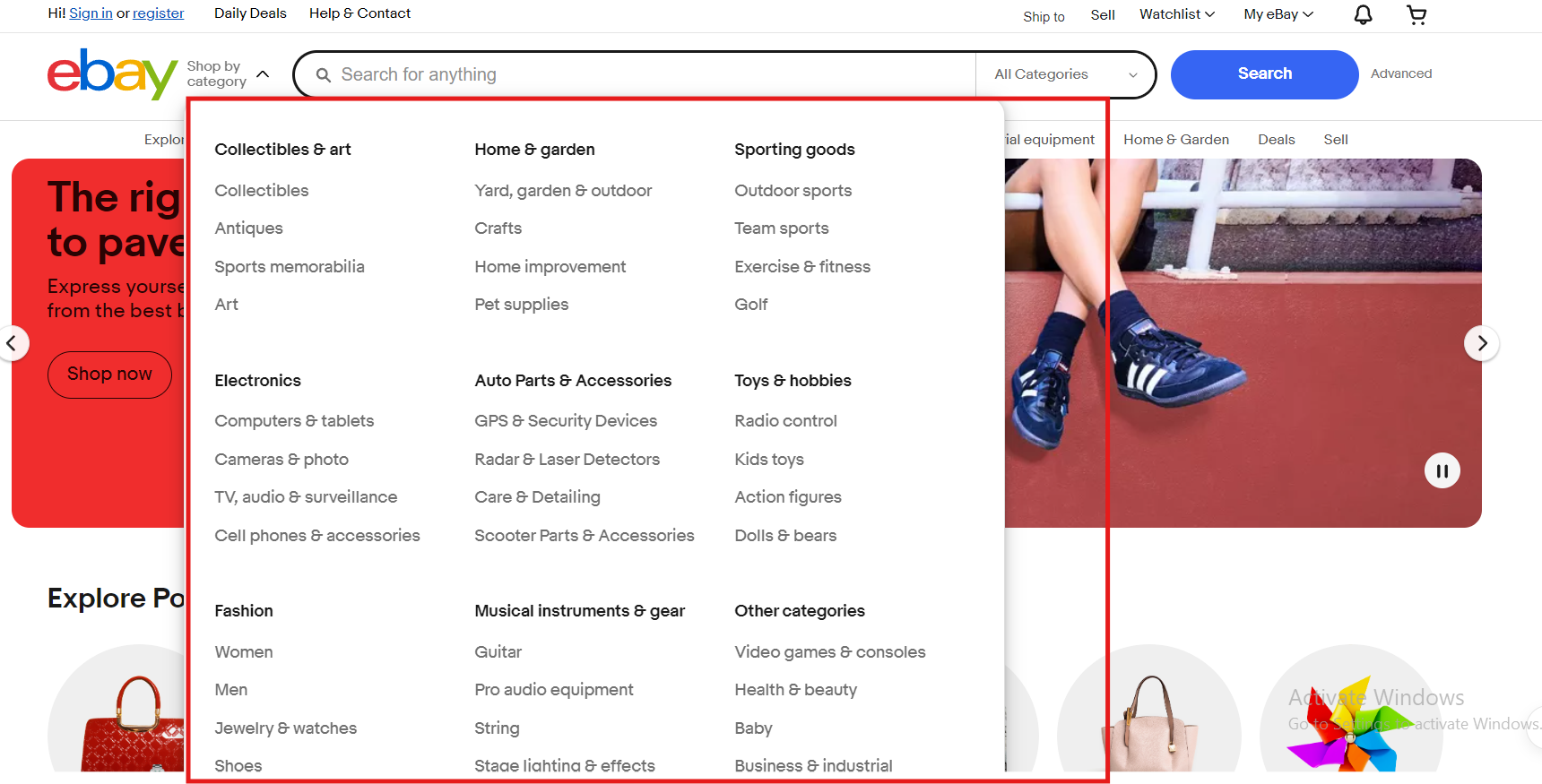

So, here’s an example.
I always find Next Deal Shop inspirational when it comes to general dropshipping stores. Hence, They’ve been at it since March 2017, which is a good sign they’re doing something right. They’ve got a broad product range, but they seem to love home and garden stuff.
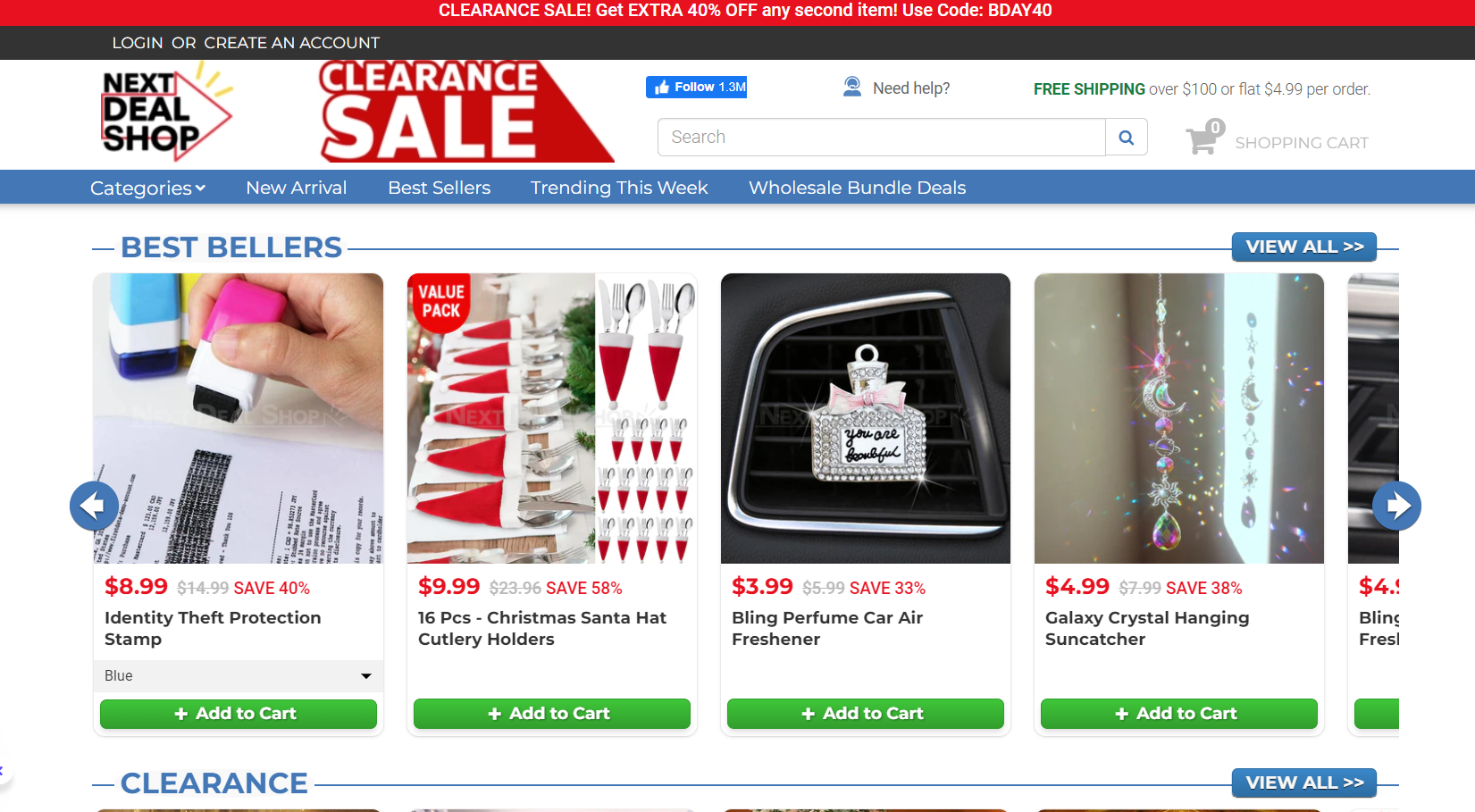
On the tech side, they’re using Shopify with their own fancy theme. It looks pretty cool. Take a peek at their products, and you might notice they resemble things from AliExpress. Also, they’ve got some nifty apps like PushOwl, Recover Lost Cart, and Product Reviews.
Guess what? They’ve got a whopping 1,500 products available. That’s a lot to choose from, huh? Overall, it’s a solid store with all the usual things you’d expect from a general store. The vibe and features will make you feel right at home. Definitely worth checking out!
Pros & Cons Of General Store Dropshipping
Pros of Dropshipping with a General Store:

General stores allow you to offer a wide variety of products, catering to different customer interests. So the question about how many products should i start with when dropshipping is most relevant here.
This flexibility of a wide range of products can attract a broader audience.


With a general store, you can quickly adapt to changing market trends. This flexibility allows you to test various products and adjust your inventory based on demand.

While it’s a general store, you have the opportunity to identify niche markets within your product range, allowing you to target specific customer segments.


Since you’re not confined to a specific niche, the risk of market saturation is reduced. You can explore different product categories to find profitable opportunities.

General stores are excellent for testing the viability of different products. You can assess customer response without committing to a specialized niche.
Cons of Dropshipping with a General Store:

Operating a general store may mean you lack in-depth knowledge about specific products or niches. This can impact your ability to provide expert advice or marketing tailored to a particular audience.

General stores might find it challenging to create targeted marketing strategies since the audience is diverse. Tailoring campaigns to suit everyone can be difficult.

General stores may struggle to establish a strong and memorable brand identity. Specialized stores often find it easier to create a brand that resonates with a specific audience.

Since your audience is broad, advertising costs may be higher as you need to reach a larger and more diverse group of potential customers.

General stores often compete with specialized stores that focus on specific niches. These specialized stores may have a more in-depth understanding of their audience, giving them a competitive edge.
Top 3 Examples Of Successful General Dropshipping Stores
1. Oddity Mall
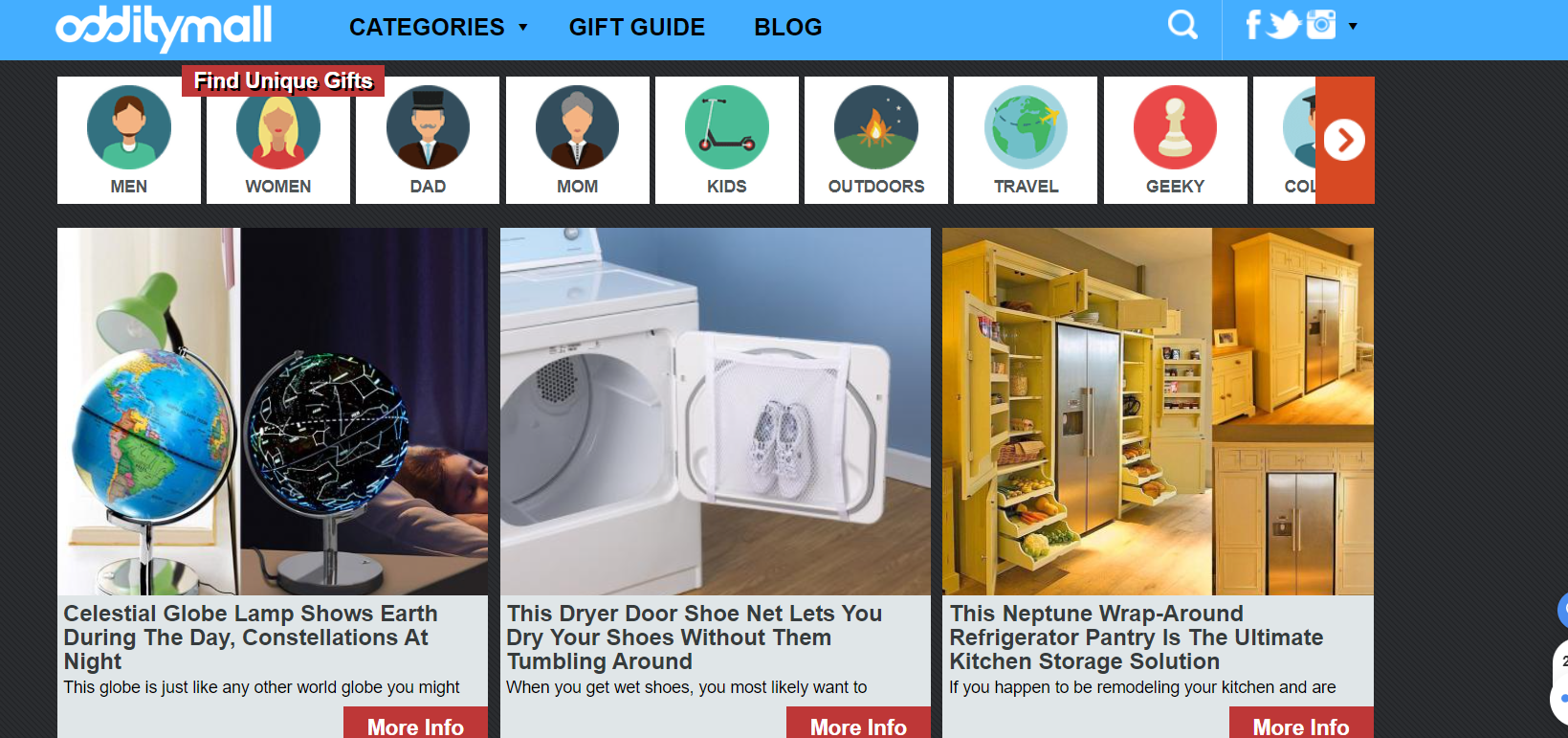
OddityMall stands out as a unique Shopify general dropshipping store, featuring a wide range of affordable products.
Rather than relying on aggressive marketing strategies, OddityMall focuses on offering a diverse selection of product categories, including gadgets, outdoor gear, geeky items, pet products, home and kitchen essentials, and kids’ goods.
The store’s success comes from its use of high-quality visuals, detailed product descriptions, and engaging videos.
These elements serve as the foundation of its sales approach, drawing in customers through visual and informational appeal.
2. Inspire Uplift
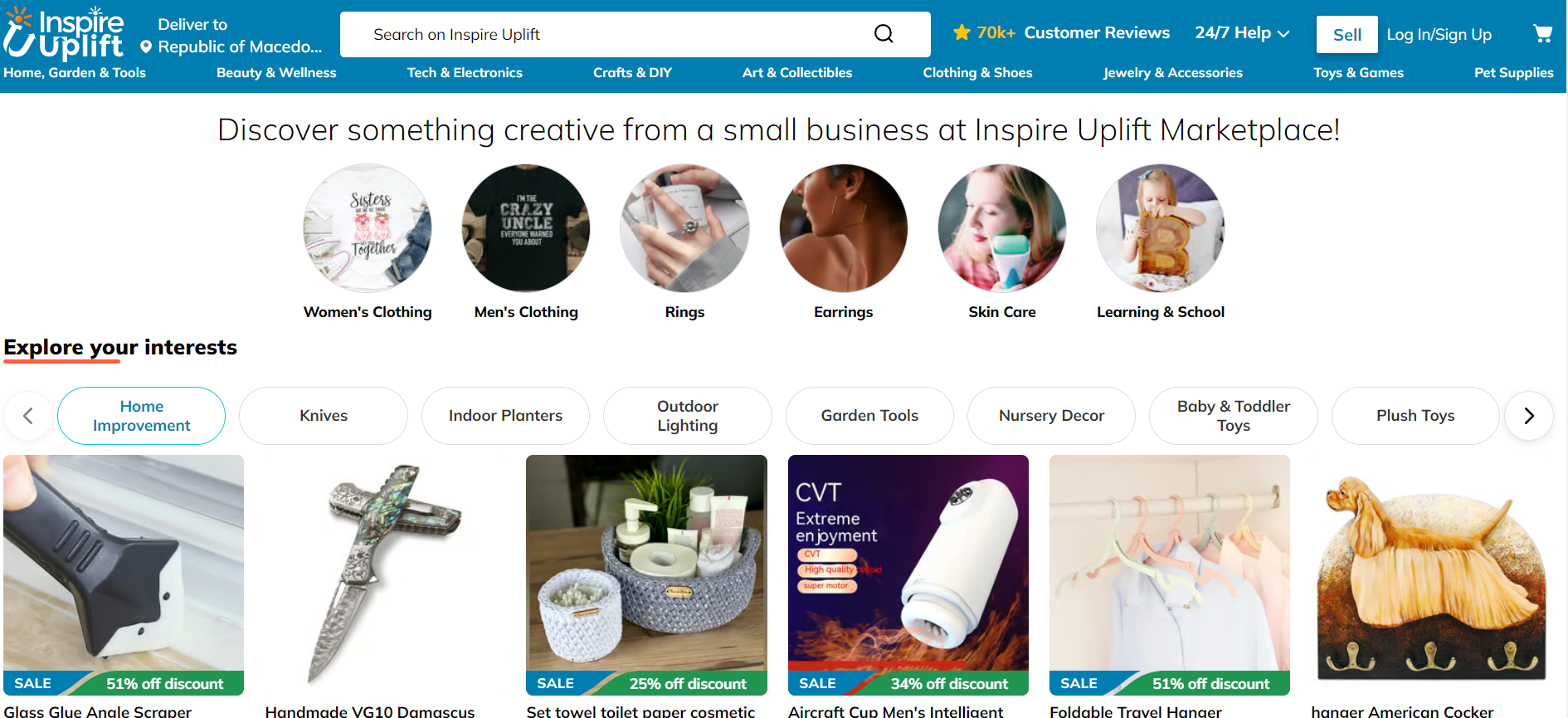
Inspire Uplift is a well-known general dropshipping store, offering a vast selection of fun, creative, and practical items at budget-friendly prices.
Their catalog includes products across numerous product categories, such as women’s clothing, men’s clothing, accessories, skincare, educational supplies, as well as indoor and outdoor products, making it a versatile destination for a wide audience.
3. Best Choice Products
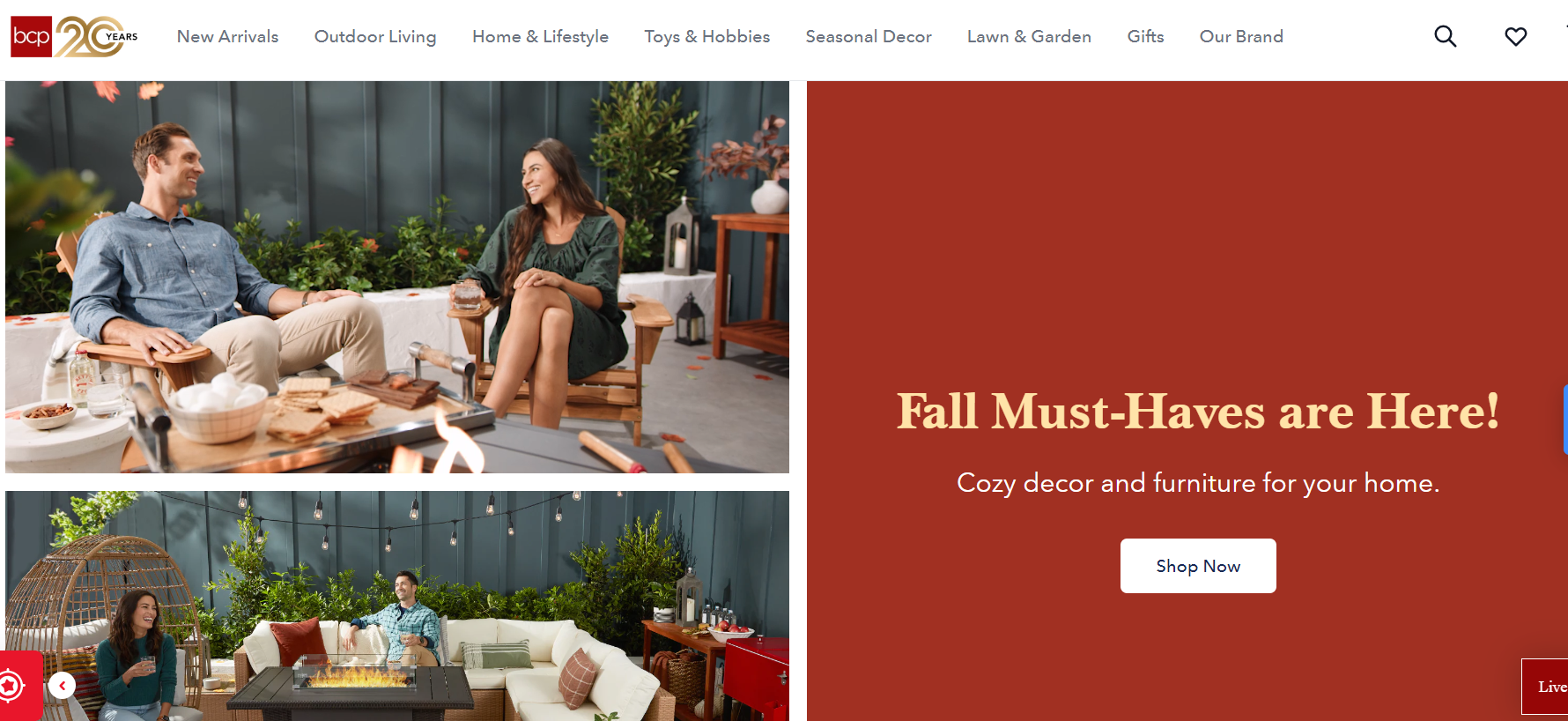
GreenLife Haven targets eco-conscious consumers by offering eco-friendly and sustainable goods.
With a focus on reusable household items and organic personal care products, the store taps into the rising demand for product categories that support a sustainable lifestyle.
How Many Products Should I Start With a Niche Store?
Niche stores have a distinct marketing approach and are focused on a certain product, category, or brand
For example, if you want to target women of a specific age group, you may open a dropshipping store that solely sells fashionable women’s apparel
So, a reasonable starting point of product quantity here might be from 5 to 20.
Customers will comprehend a limited product selection better in a niche store than in a general store because people believe that if your business is focused on a specific product type, it delivers better quality and it appears more legit.
If you offer swimwear, you’ll probably need 10 to 20 distinct models to feel like you’ve covered the market properly.
However, with anything more particular, such as one-piece swimwear, you may offer fewer as there are fewer options. You only need enough in a specialty store to seem authentic to the ordinary internet consumer.
There are various examples of niche dropshipping stores on Shopify, like, Warmly– a lighting niche store, Fashion Nova – women’s clothing, Taylor Stitch – men’s clothing, and many more.
Here’s an example.
Also, a great example is GymShark. It is a famous fitness clothing brand and a niche dropshipping store based in the United Kingdom. It’s recognized as one of the top players using the Shopify platform.
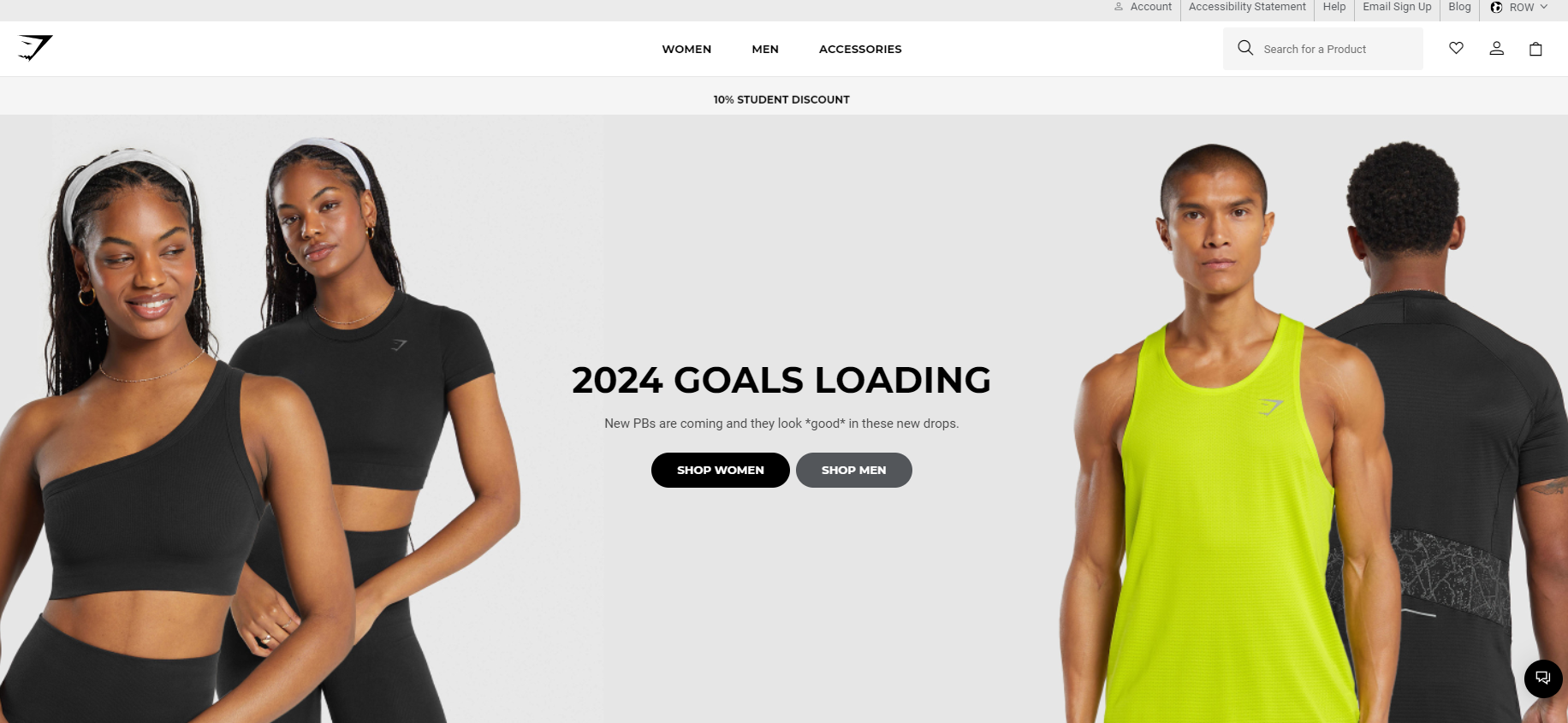
Thanks to a big social media following and customers spanning over 130 countries, GymShark has made a mark on the world stage. Nowadays, the GymShark website draws in over 9.6 million visitors every month.
And here’s the cool part about niche dropshipping stores – they make it simpler to connect with your target audience, boost conversions, and let you dive into something you genuinely enjoy, especially if you choose a niche that excites you.
Do you need help choosing a specific dropshipping niche? Or, maybe you need information on which one is most profitable?
Pros & Cons Of Niche Store Dropshipping
Pros of Dropshipping with a Niche Store:

Niche stores focus on a specific market segment, allowing for a more targeted and personalized approach to marketing to your target demographic. This often leads to higher conversion rates.

Specializing in a particular niche allows you to showcase expertise and build authority in that specific industry. Customers may trust your store more for niche-related products.

Niche stores can tailor marketing efforts to a well-defined audience, making campaigns more efficient and cost-effective. You can speak directly to the needs and interests of your target customers.

Targeted marketing often results in lower advertising costs.
You can reach a more engaged audience, reducing the need for broad and expensive advertising campaigns.

Niche stores can establish a strong and memorable brand identity within a specific market, making it easier for customers to remember and recommend your store.
So, when it comes to how many products should i start with when dropshipping in a niche store, I rather emphasize building a brand with a few first.
Cons of Dropshipping with a Niche Store:

A niche store might have a more limited product range compared to a general store. This could potentially limit the number of customers and revenue streams.

Niche markets can be more susceptible to economic fluctuations or trends. If your niche falls out of favor, it may impact your sales more significantly than a diversified general store.

Setting up a niche store requires thorough market research to identify a profitable and sustainable niche. This research can be time-consuming and may not guarantee success.

Niche markets often have established competitors. It can be challenging to compete with existing brands that have a strong foothold in the niche.

Relying solely on a niche means higher dependence on the success of that specific market. If the niche becomes less popular or faces challenges, your business may be at risk.
Top 3 Examples Of Successful Niche Dropshipping Stores
1. Unconditional
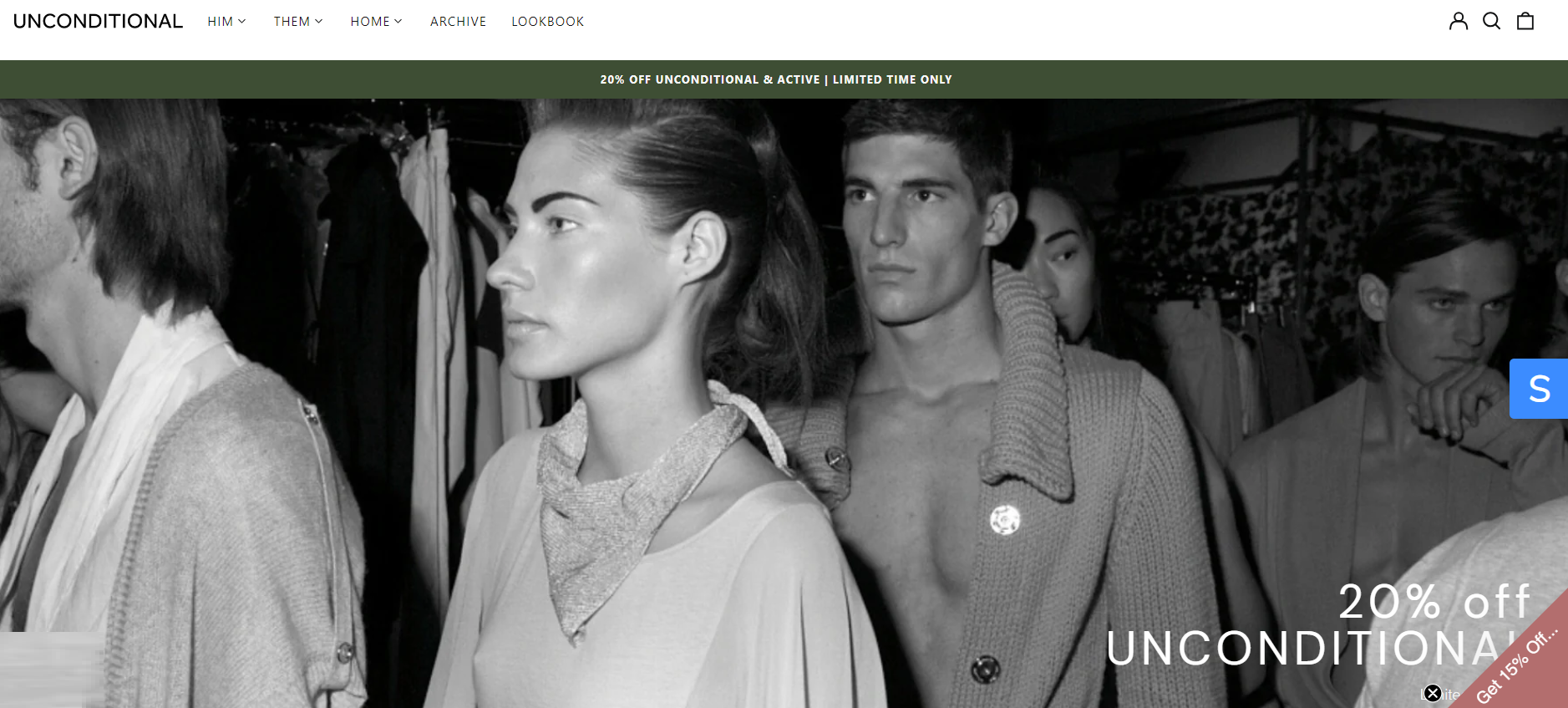
Unconditional is a standout Shopify store that’s been in the premium clothing industry for over a decade.
Their site design immediately sets the tone with a classic and minimalist feel, giving it a high-end appeal.
With engaging pop-ups for newsletters and sleek full-screen photo layouts, they manage to balance aesthetics with functionality.
Their product pages provide all the necessary details, including size guides and photos, while cross-selling with the “You may also like” feature.
The use of social proof through a detailed footer strengthens trust, and their marketing strategy ties in well with newsletters and a strong social media presence.
2. Notebook Therapy
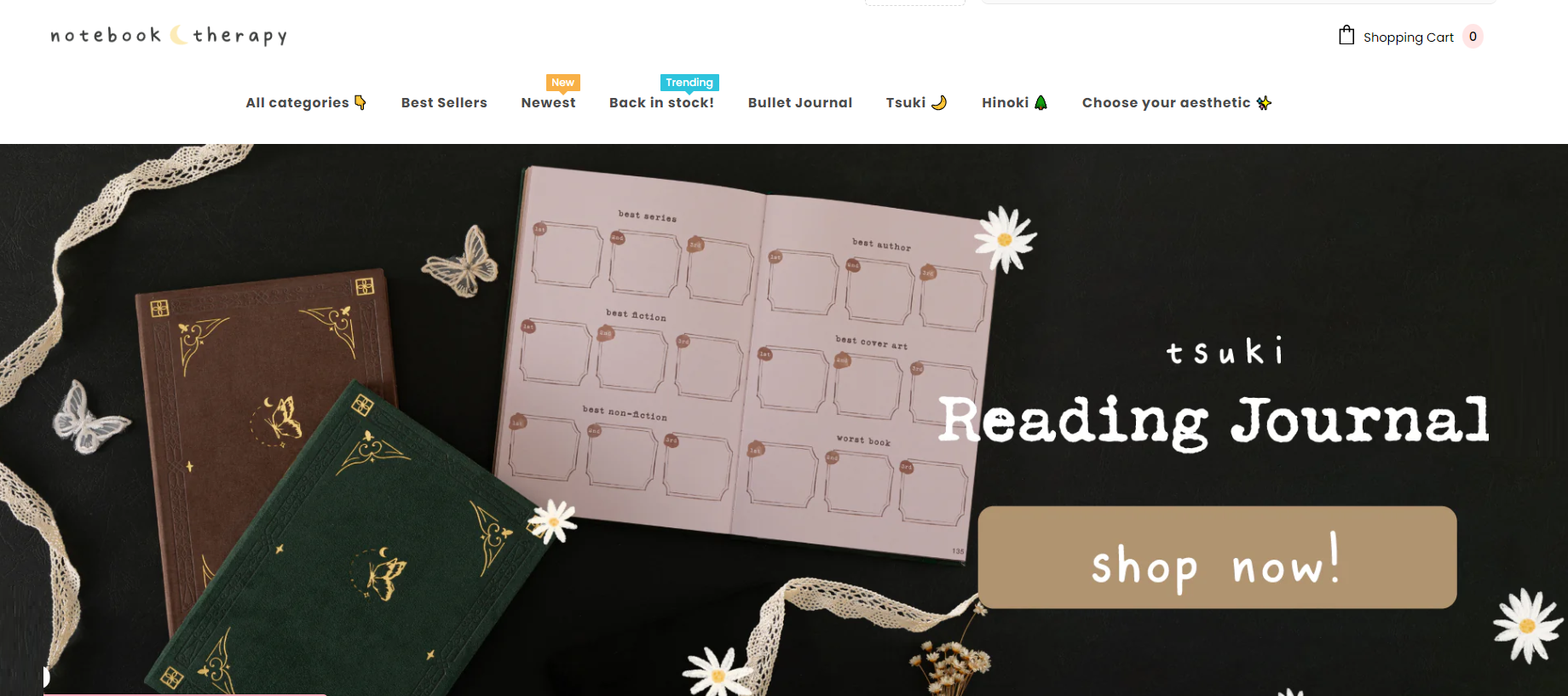
Notebook Therapy specializes in Japanese and Korean stationery, targeting an Eastern-culture-inspired audience.
The website is visually engaging, immediately offering value through a $50 gift card pop-up.
This Shopify store excels in user experience, with a full-screen photo layout and well-placed call-to-action buttons like “Shop Now,” enhancing conversions.
Its navigation is simple but effective, while product pages feature detailed descriptions and high-quality photos.
3. My Luxurious Home
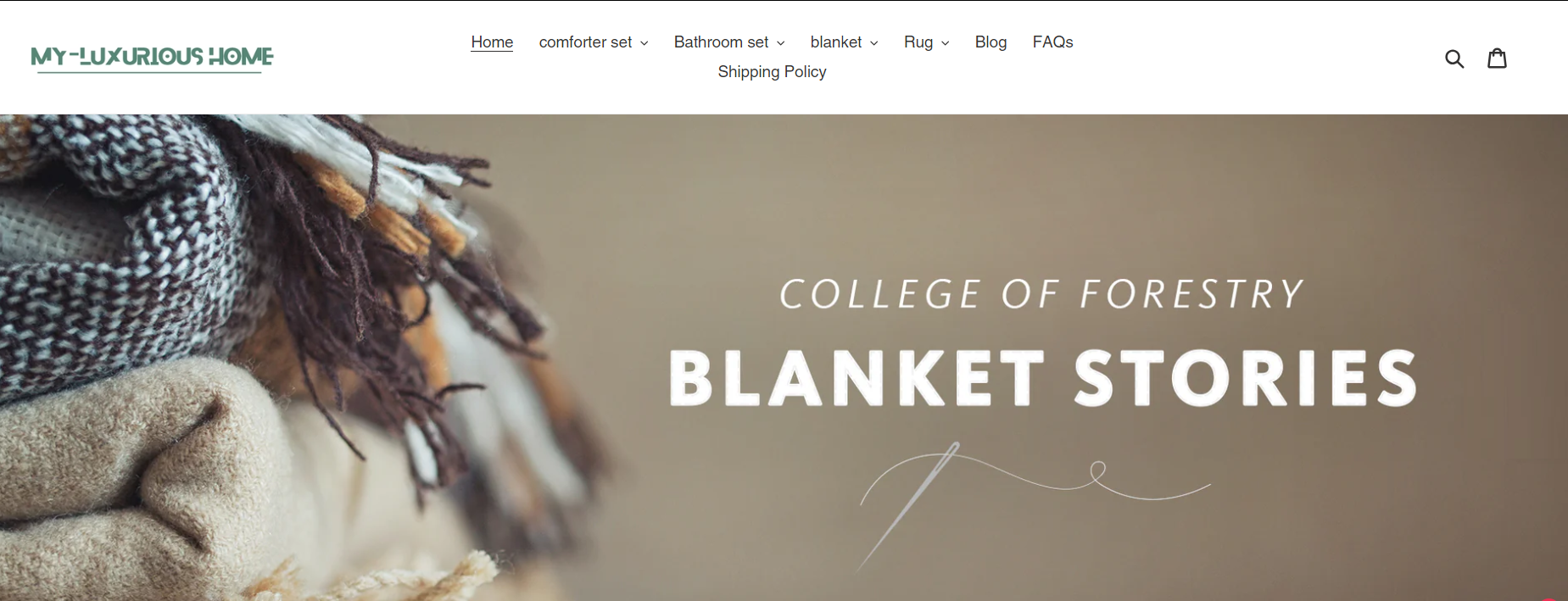
My Luxurious Home is another strong Shopify store, focusing on home goods such as shower curtains and bed sets.
They offer a broad selection of affordable, high-quality products shipped globally via well-known logistics companies like DHL and UPS. The website’s design is visually appealing with its full-screen photos and strategically placed call-to-action buttons in bold red.
Their product pages are detailed, including customer reviews that add trust. Marketing efforts include offering significant discounts and featuring a newsletter to inform customers about promotions.
The only drawback is the absence of visible social media links, despite having a presence.
Is One Product Dropshipping Store a Good Idea For Beginners?
Probably your question here would be, What am I going to do if selling only one product? How can I offer multiple choices? The truth is you don’t have to!
This type of store gives customers an image of a dropshipping business that is professional at its job, with a well-curated product selection, and delivers high-quality products. Because you have all the time in the world to focus on it and master it!
Have you heard about Snooz? This dropshipping business sells one product- a portable noise machine called Snooz and is a great example of a successful one-product store.
BONUS:Top 10 Products To Dropship In September 2025
When starting a one-product store, all you need is a well-thought-out marketing approach and a specific viewpoint that customers circle. Your product needs to solve someone’s problem, and Baam, Sales!
One-product stores have great potential for success. The advantage of using a single-product approach is that you can focus your marketing efforts more effectively because they are time-consuming tasks.
So here we break the rule of “how many products is the perfect amount for dropshipping” because you can master the dropshipping market with even a well-established one-product strategy.
Pros & Cons Of One Product Store Dropshipping
Pros of Dropshipping with a One-Product Store:

Managing a one-product store is straightforward due to the simplified product selection. There’s less complexity in inventory management, order fulfillment, and marketing strategies. So, is there a “how many products should i start with” question?
Yes, you can have a one-product store, and still keep it simple, offering few related products to it.

With only one product, your marketing efforts can be laser-focused. This allows for targeted advertising and messaging, making it easier to convey the product’s unique selling points.

A single-product store can create a strong and memorable brand identity around that specific item. This can lead to better recognition and recall among customers.

Testing and optimizing your store, product pages, and marketing strategies are simpler when dealing with a single product. It’s easier to track what works and make adjustments accordingly.

Managing a one-product store often requires a lower initial investment compared to stores with a broader range of products. This can be advantageous for entrepreneurs with limited resources.
Cons of Dropshipping with a One-Product Store:

The success of your business is heavily dependent on the success of the single product selection. If it loses popularity or faces competition, your revenue may decline significantly.

Operating with just one product means relying on a single revenue stream. Diversification is limited, and any changes in market demand can impact your business more substantially.

If the product becomes oversaturated in the market or faces copycats, maintaining a competitive edge may be challenging.

With only one product, opportunities for upselling or cross-selling are limited. This may result in lower average order values compared to stores with a broader product range.

The success of a one-product store can be affected by market trends and seasonality. If the product is a trend or seasonal item, your business may face challenges during off-seasons.
Top 3 Examples Of Successful One Product Stores
1. BlendJet
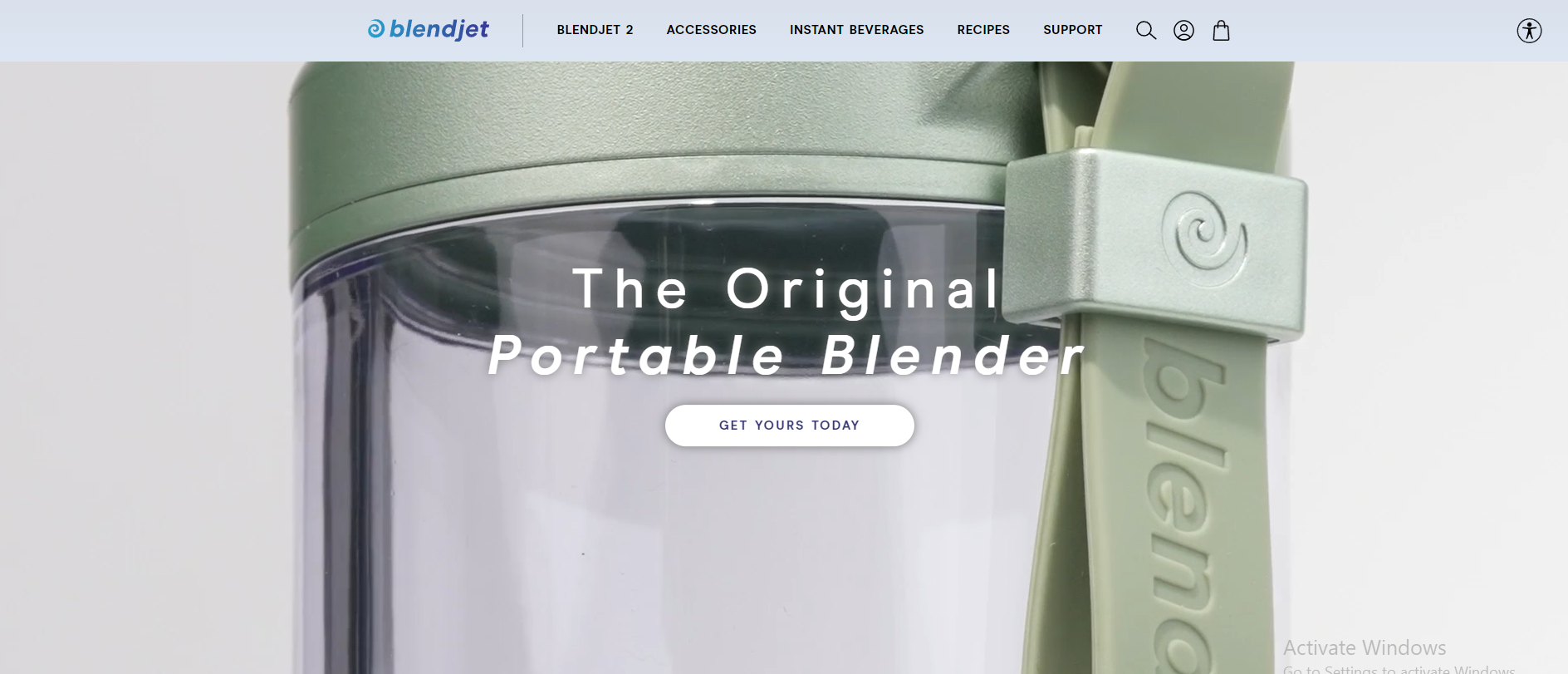
BlendJet offers a portable blender perfect for making smoothies and drinks on the go.
Their marketing revolves around vibrant visuals, influencer collaborations, and a recipe blog, all of which highlight the blender’s versatility.
BlendJet’s success comes from tapping into the health and convenience trend, making it appealing to busy, health-conscious individuals.
The store’s intuitive design, combined with user testimonials and engaging content, keeps customers interested long after their first purchase.
2. Thinx
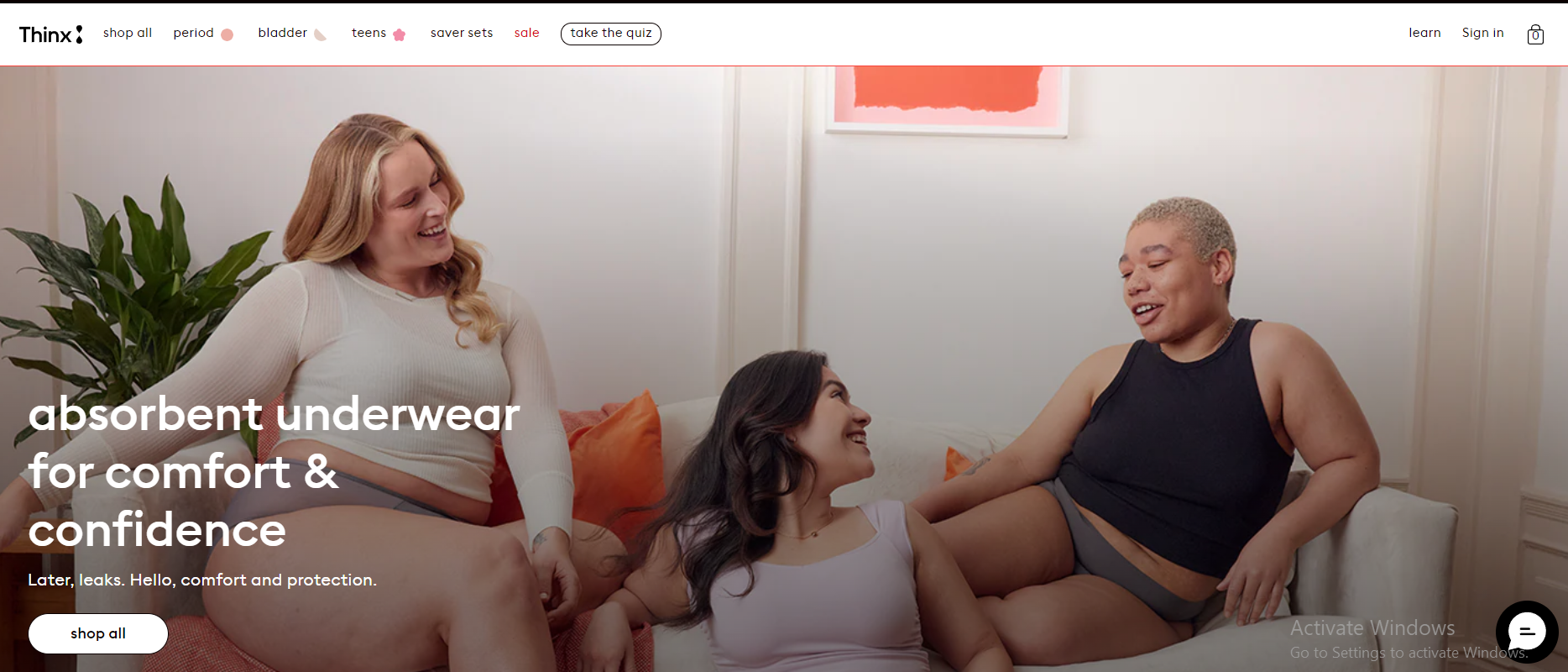
Thinx is a Shopify store offering reusable period underwear, a sustainable alternative to disposable hygiene products.
They focus on environmentally conscious shoppers by using simple, yet effective, product videos that demonstrate the underwear’s practicality.
Thinx succeeds by offering a single, high-quality product with a clean, intuitive store design.
Moreover, the use of video content and customer reviews builds trust, creating a seamless shopping experience that resonates with their audience.
3. Fybelle
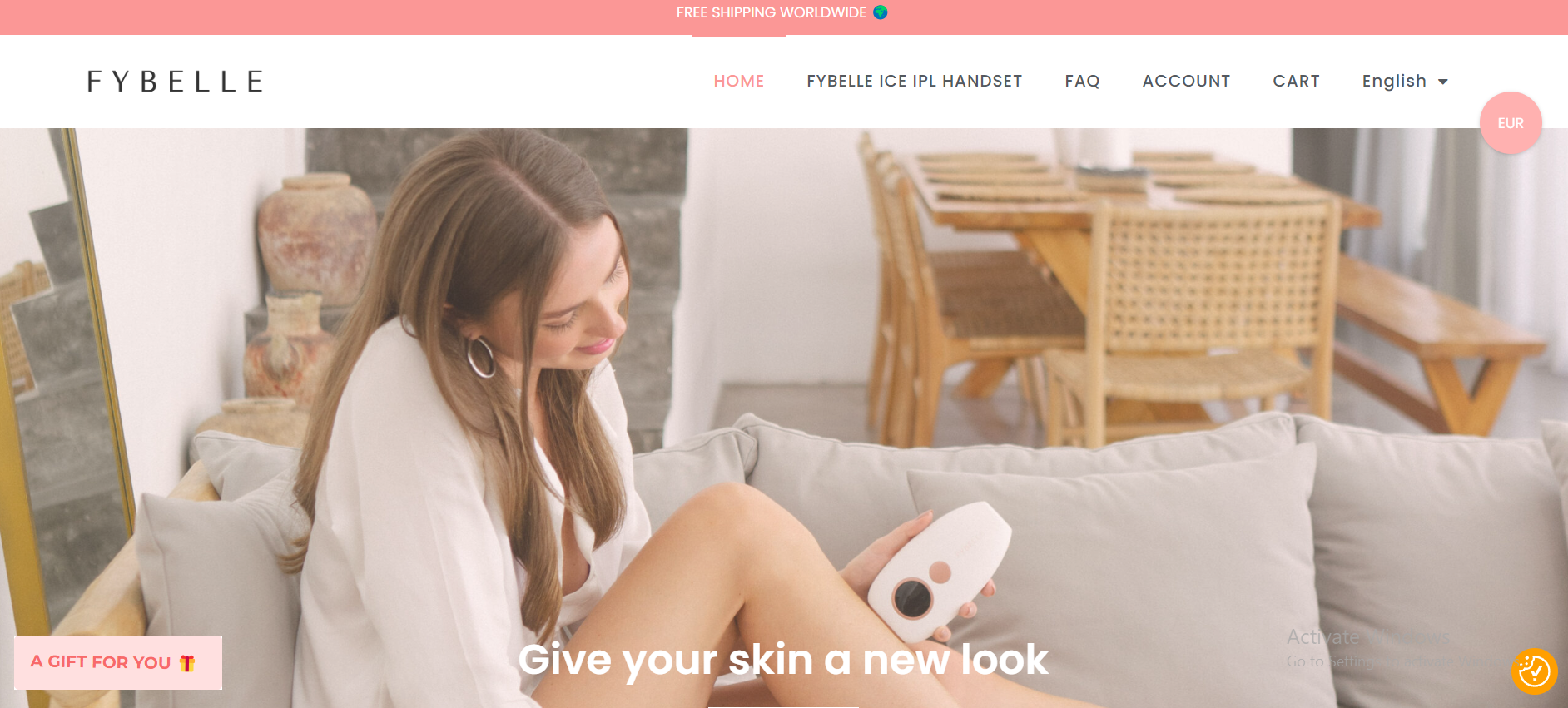
Fybelle offers an IPL hair removal device aimed at women looking for a cost-effective alternative to professional treatments.
Their feminine website design, combined with comparison charts and product videos, clearly demonstrates the product’s value and affordability.
Moreover, Fybelle’s marketing effectively targets young women by focusing on convenience and savings, which helps build trust.
Also, the simple messaging and attractive visuals further enhance the product’s appeal, making it stand out in the beauty industry.
Top 5 Products To Dropship When Starting Out
1. Wireless Earbuds
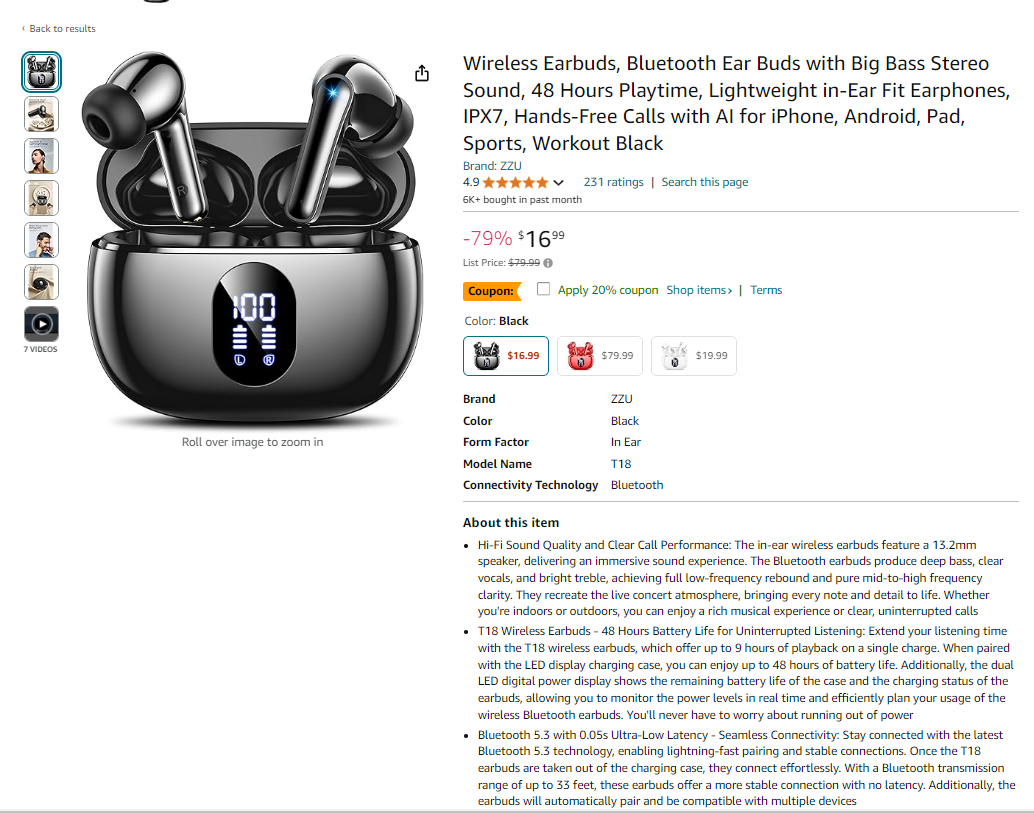
Starting a dropshipping business with wireless earbuds is a smart choice because it taps into a thriving online business model.
Through comprehensive market research, you’ll find that wireless earbuds have universal appeal and are easy to market to a broad target demographic. These high-quality products cater to young professionals, tech enthusiasts, and students.
Also, you can source them from suppliers for around $5 to $20, while the retail price can reach $30 to $100, giving you a potential profit margin of 50-70%.
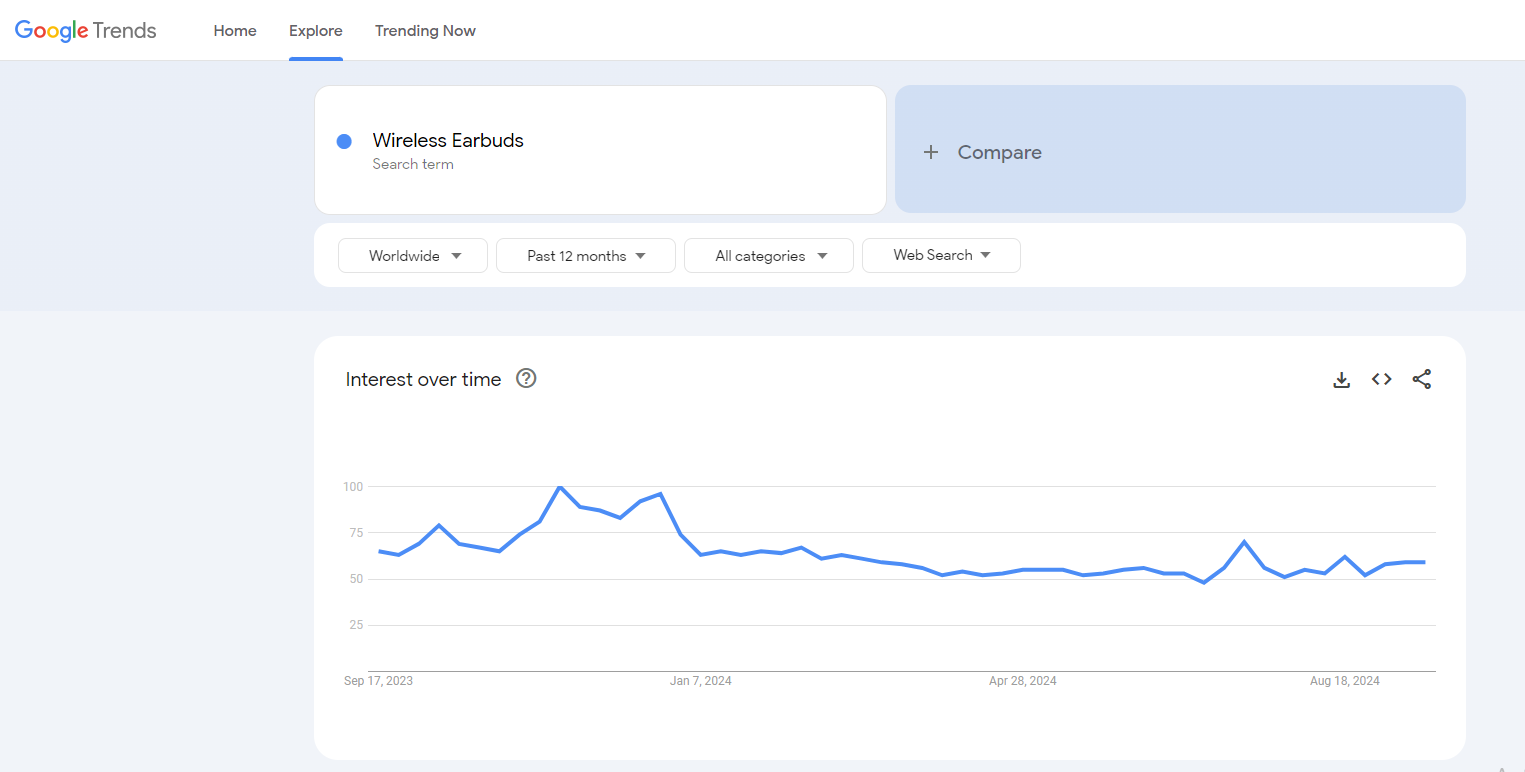
Since wireless earbuds are compact and inexpensive to ship, you’ll reduce inventory costs and keep fulfillment efficient.
2. Phone Cases
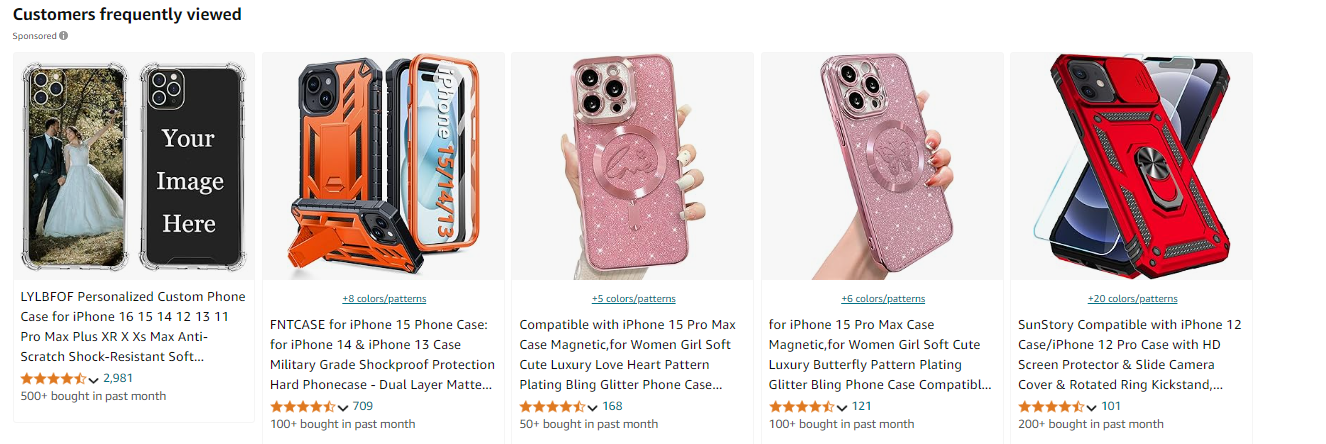
If you’re concerned about inventory costs and want to start with a manageable number of products, phone cases are a great option for your Shopify store or niche store.
This product appeals to a wide range of customers, from teenagers to professionals who want to protect their devices while showcasing personal style.
Through market research, you’ll find that phone cases are a highly competitive product category, allowing you to offer niche items like personalized or eco-friendly cases.
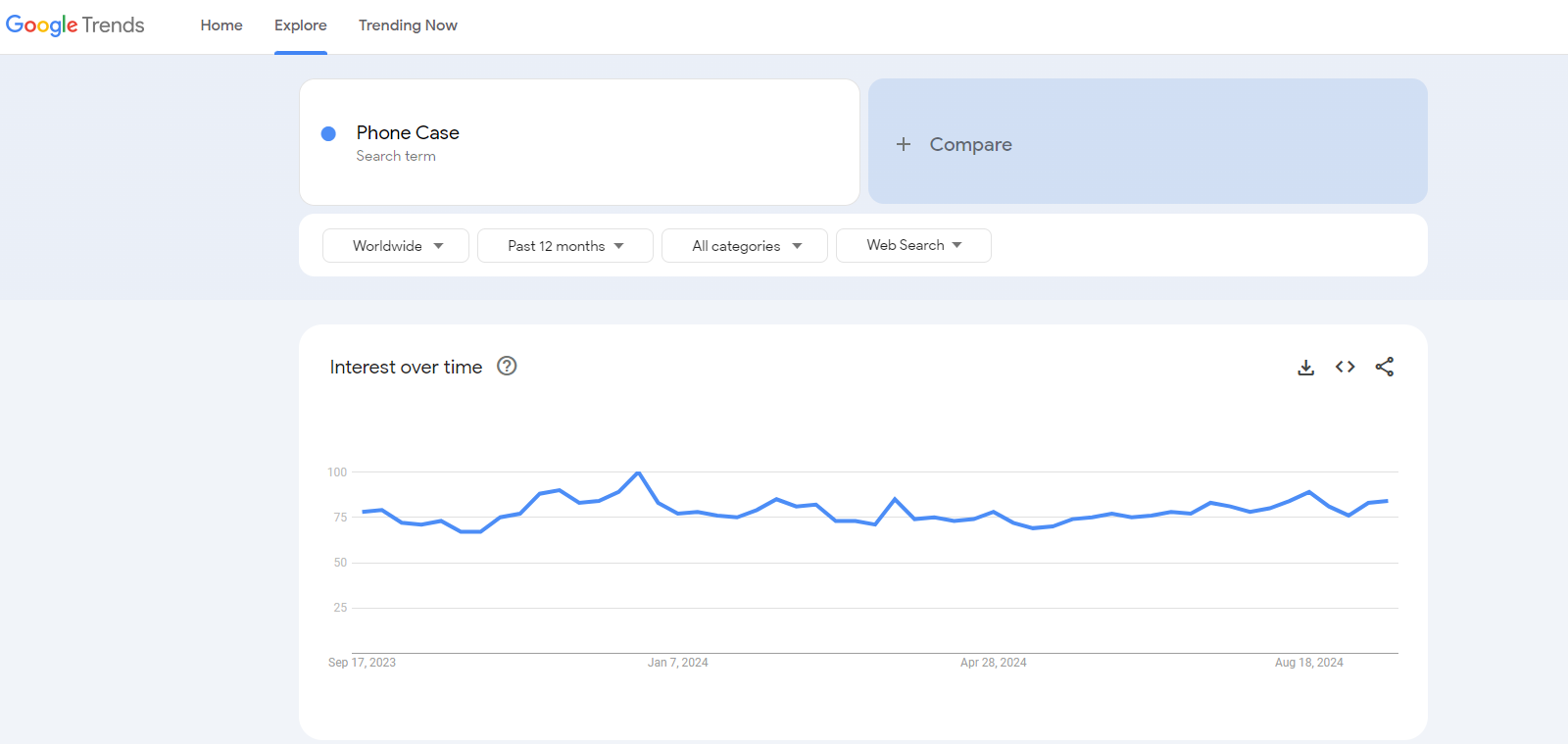
The supplier price range for phone cases is typically $1 to $5, while the retail price can go up to $50, providing an impressive profit margin of up to 80%.
Analyzing customer feedback will help you expand your product catalog and gradually add more designs to meet customer needs.
3. Yoga Mats
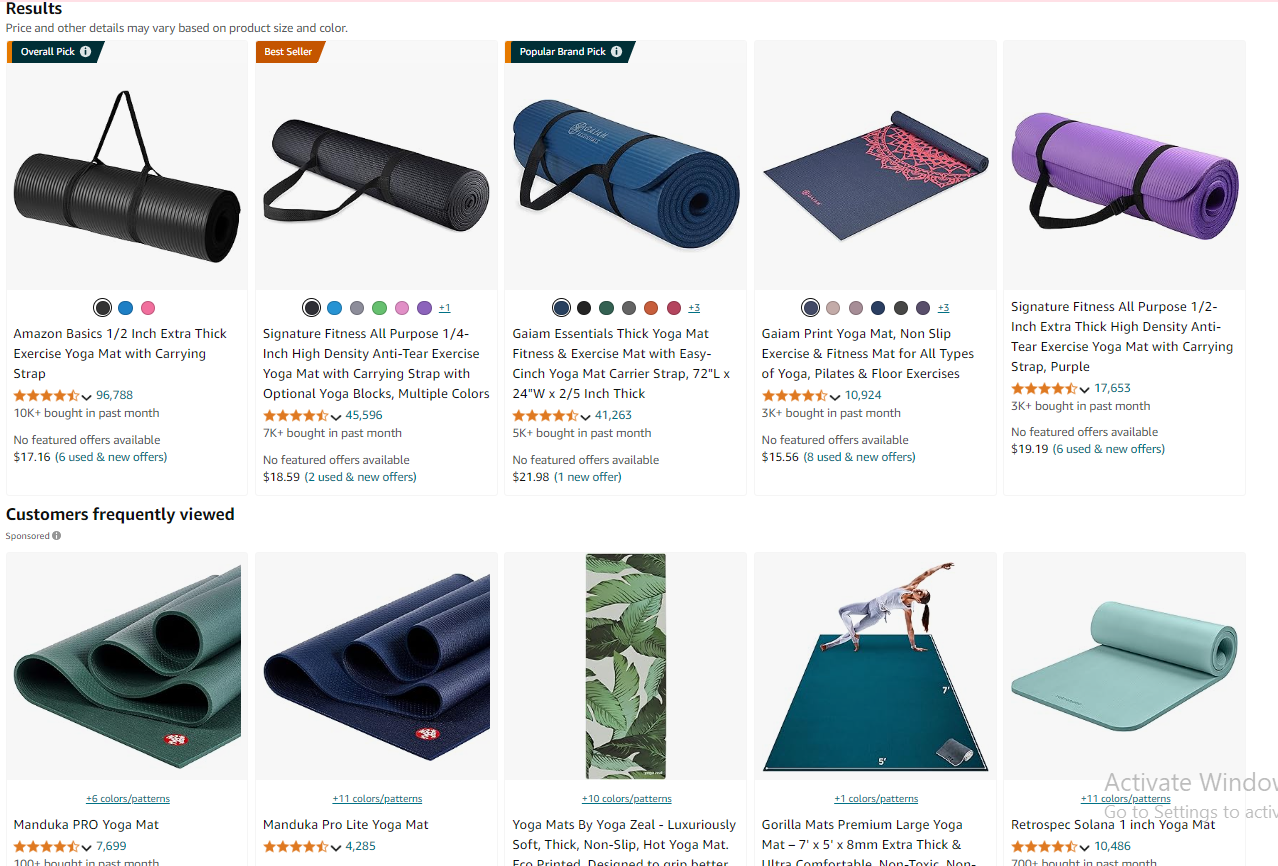
Yoga mats are a perfect fit for a niche store that focuses on health and wellness. With the rise of home workouts, yoga mats cater to fitness enthusiasts and those practicing mindfulness, especially women aged 25-45.
A thorough market research will reveal that offering unique, high-quality products like eco-friendly or personalized yoga mats can significantly impact your business.
Furthermore, suppliers offer yoga mats for around $8 to $15, while the retail price ranges from $30 to $70, giving you a profit margin of 50-60%.
This allows you to balance between a curated selection and multiple products in your dropshipping journey, ensuring your product range grows organically with customer preferences.
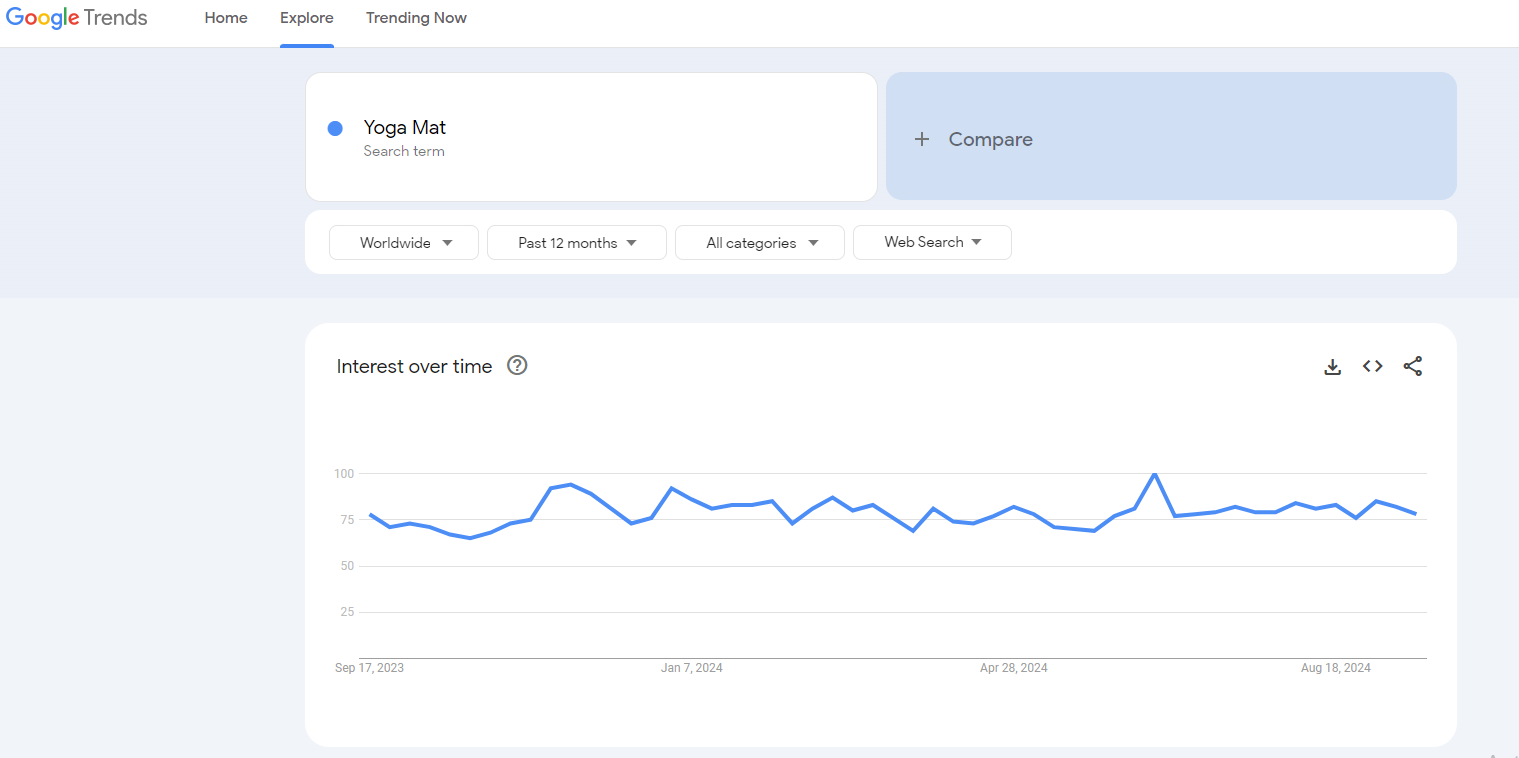
The overall business strategy should include marketing efforts that highlight health benefits and eco-conscious materials.
4. LED Lights
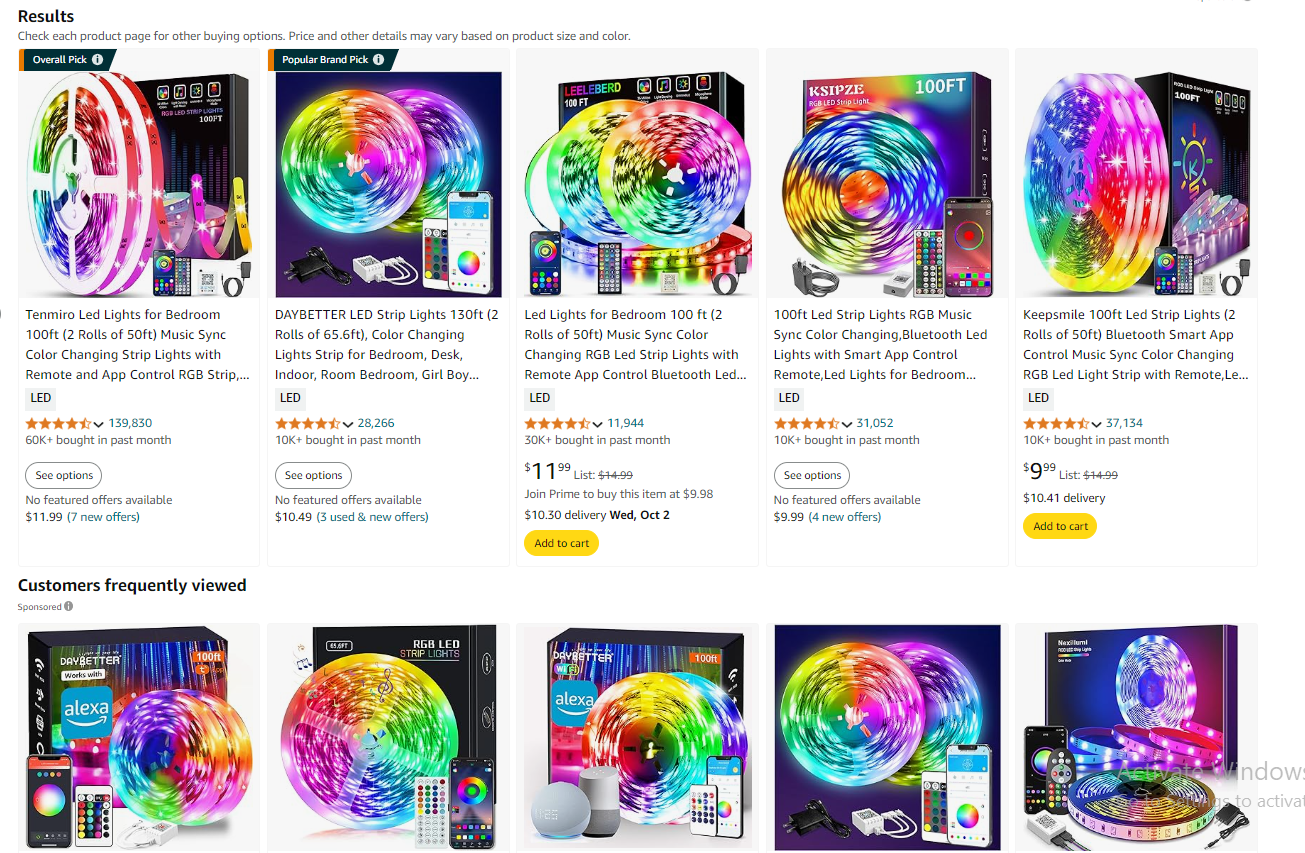
Starting a dropshipping venture with LED lights, particularly decorative strips, positions you to meet the growing demand for home décor and smart home solutions.
LED lights are popular among potential customers like gamers, home decorators, and tech enthusiasts who love ambient lighting.
Comprehensive market research shows that the supplier price range for LED lights falls between $3 to $10, while retail prices range from $20 to $50, offering a healthy profit margin of 60-75%.
As your store grows, you can gradually add more lighting solutions to your product range, tapping into emerging trends like smart lighting systems.
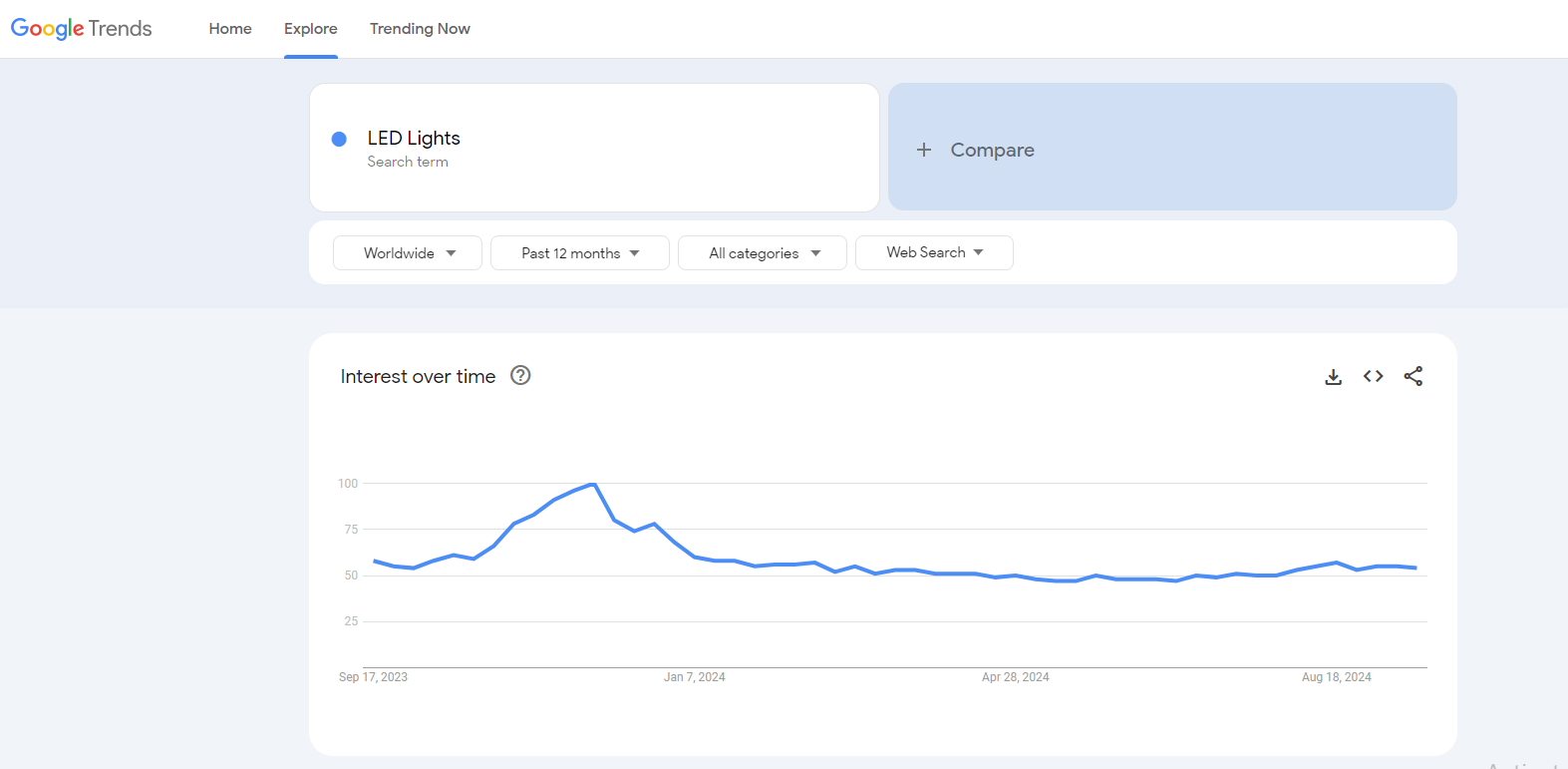
Leveraging customer feedback and adjusting your marketing efforts based on their preferences will be key to scaling this product.
5. Portable Blenders
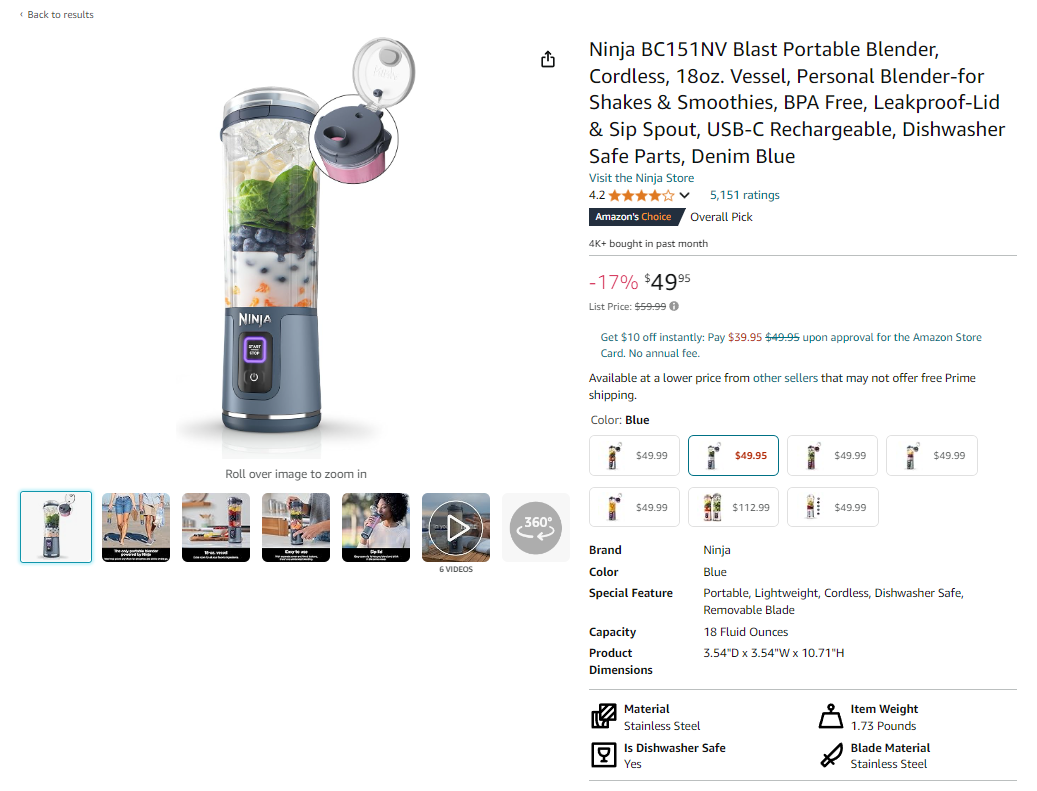
Portable blenders are an ideal product to dropship if you aim to start with a focused product selection in the health and wellness market.
With increasing interest in on-the-go nutrition and meal prep, this product appeals to a target audience of fitness enthusiasts, busy professionals, and parents.
You can source portable blenders from suppliers for $10 to $25, while the retail price ranges between $40 and $80, resulting in a profit margin of 50-70%.
This product fits well in both a general store and a niche store, offering flexibility in your business model.
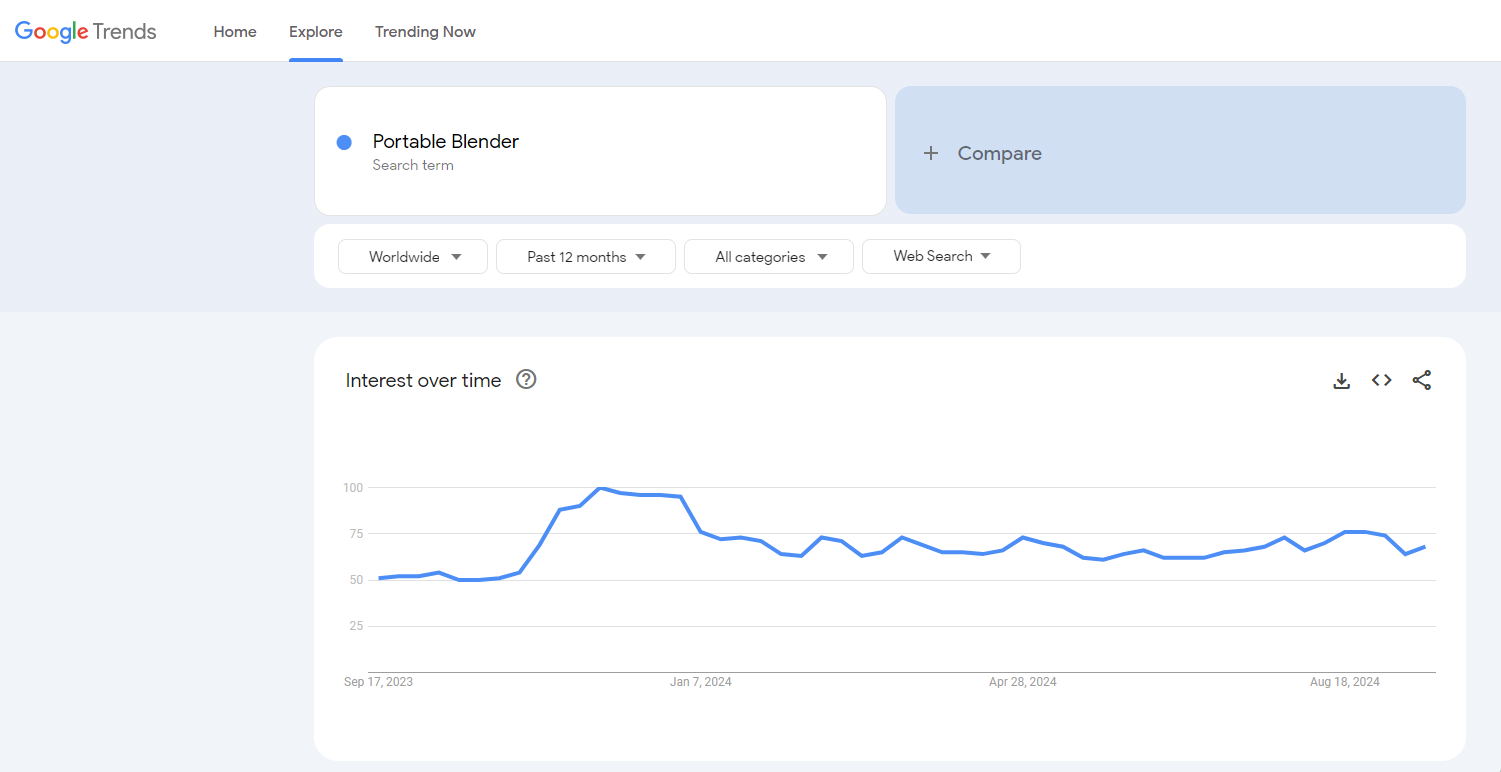
By analyzing customer preferences and using customer feedback, you can optimize your marketing efforts and scale your online store efficiently.
FAQs- How Many Products Should I Start With When Dropshipping?
1. Is there an ideal number of products to start with when dropshipping?
I’d recommend kicking things off with a manageable range, maybe around 10-20 products. It helps you keep things focused and easier to handle in the beginning.
2. Why is it important to limit the number of products initially?
Well, limiting your product range at the start lets you concentrate on delivering quality, perfecting your marketing, and providing top-notch customer service. It’s like learning to ride a bike – you start with training wheels before going full speed.
3. Should I focus on a niche or offer a variety of products?
Personally, I’d say starting with a niche is a smart move. It helps you target a specific audience and craft a more tailored marketing strategy. Once you’ve got the hang of it, you can always diversify.
4. How do I choose the right products for my dropshipping store?
Look for products with a buzz – high demand, low competition, and decent profit margins. Dive into trends, use some handy tools for market analysis, and trust your gut.
Also, there are various product research tools like Minea, and Adserea, which can help you identify the winning products for your dropshipping store.
5. Is it better to test a few products or launch a wide range from the beginning?
I’d lean towards testing a handful of products first. It’s like dipping your toes in the water before taking the plunge. Learn what works, gather data, and then expand strategically.
6. What impact does the number of products have on website design and user experience?
A smaller product range gives your website a clean and friendly vibe. It’s like walking into a boutique rather than a massive department store – easier for visitors to navigate and find what they want.
7. How can I scale my product range over time?
Once you’ve got a loyal customer base and a solid marketing game, you can slowly introduce new products. It’s like growing your garden – nurture what you have, and then add more blooms when the time is right.
8. What tools can help me manage a larger product inventory efficiently?
Think about using tools like inventory management software, slick dropshipping platforms – they’re like your personal assistants, making sure everything runs smoothly. For instance, you can use ShipBob, Inventory Source, AutoDS, etc.
9. How often should I update my product offerings?
Keep your eyes on the market trends, listen to what your customers are saying, and update accordingly. It’s like refreshing your wardrobe – stay stylish and relevant.
10. What role does marketing play in the success of a dropshipping store with a limited product range?
Marketing becomes your superhero. Craft targeted and exciting campaigns for your selected products – it’s like shouting from the rooftops to make sure everyone knows about your awesome finds.
Conclusion
Knowing the right answer to: “how many products should I start with” is not easy at all!
There are a lot of things to consider before choosing the right amount of products, like the knowledge level about the dropshipping market, the type of store, whether is a general store, niche store, or one-product store.
Each of these types of stores has its challenges and a certain range of the best quantity that is recommended to sell.
Don’t forget your customers! They can also be your best compass when determining the quantity you want to offer.
And, follow our additional tips for adding new products from time to timeavoiding the paradox of choice, and balancing the number of products!















![The Top 21 3PL Companies Compared [2025 List & Guide]](https://images.weserv.nl/?url=https://prod-dropshipping-s3.s3.fr-par.scw.cloud/2024/03/Frame-3922469.jpg&w=420&q=90&output=webp)